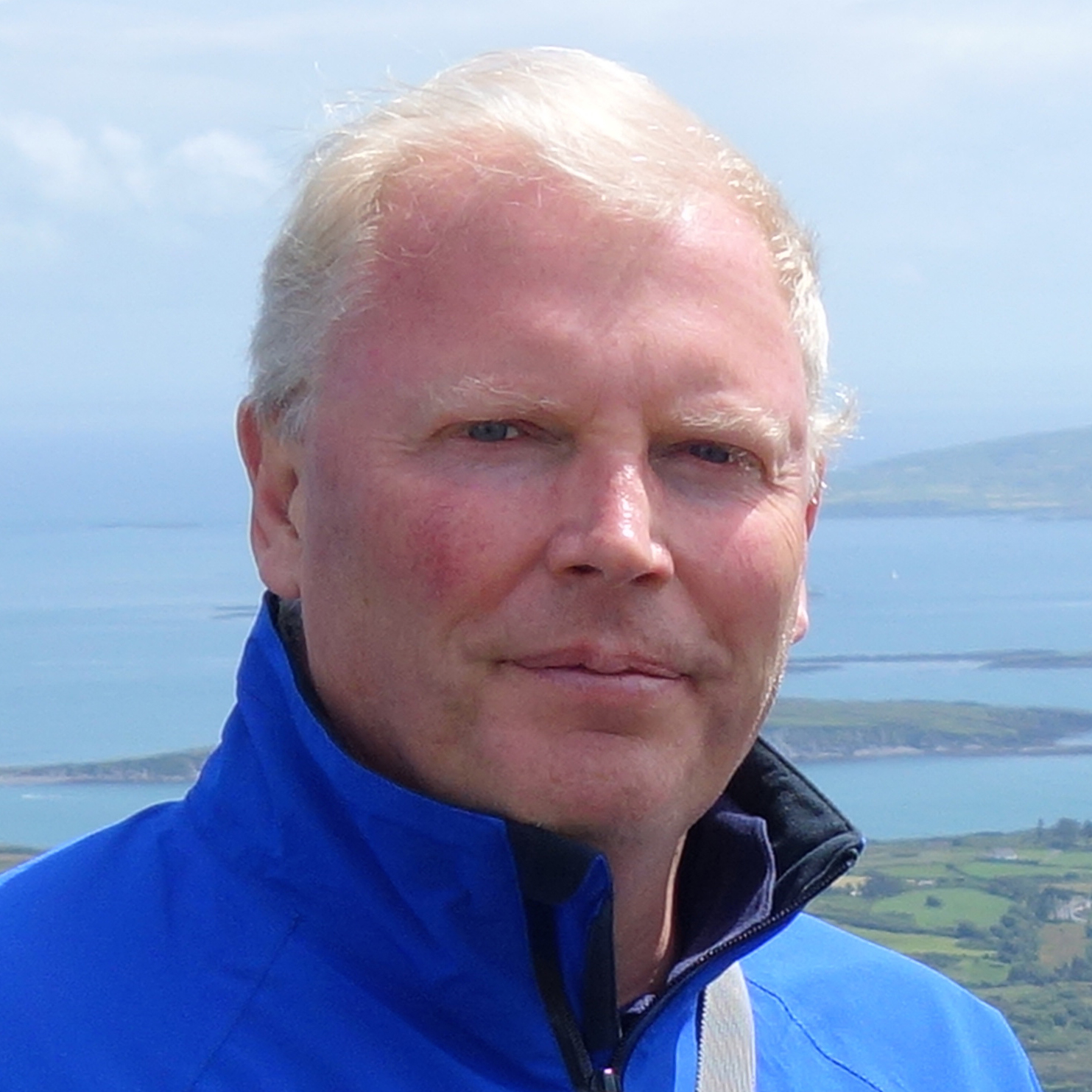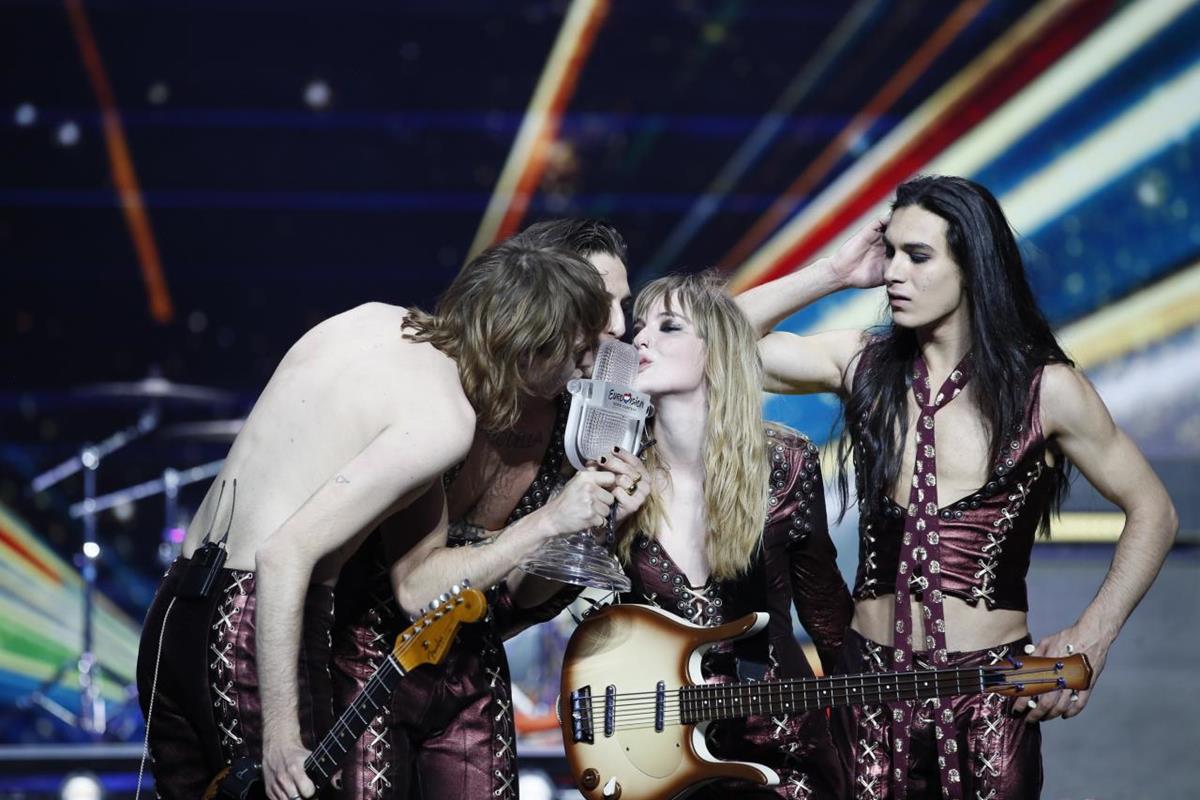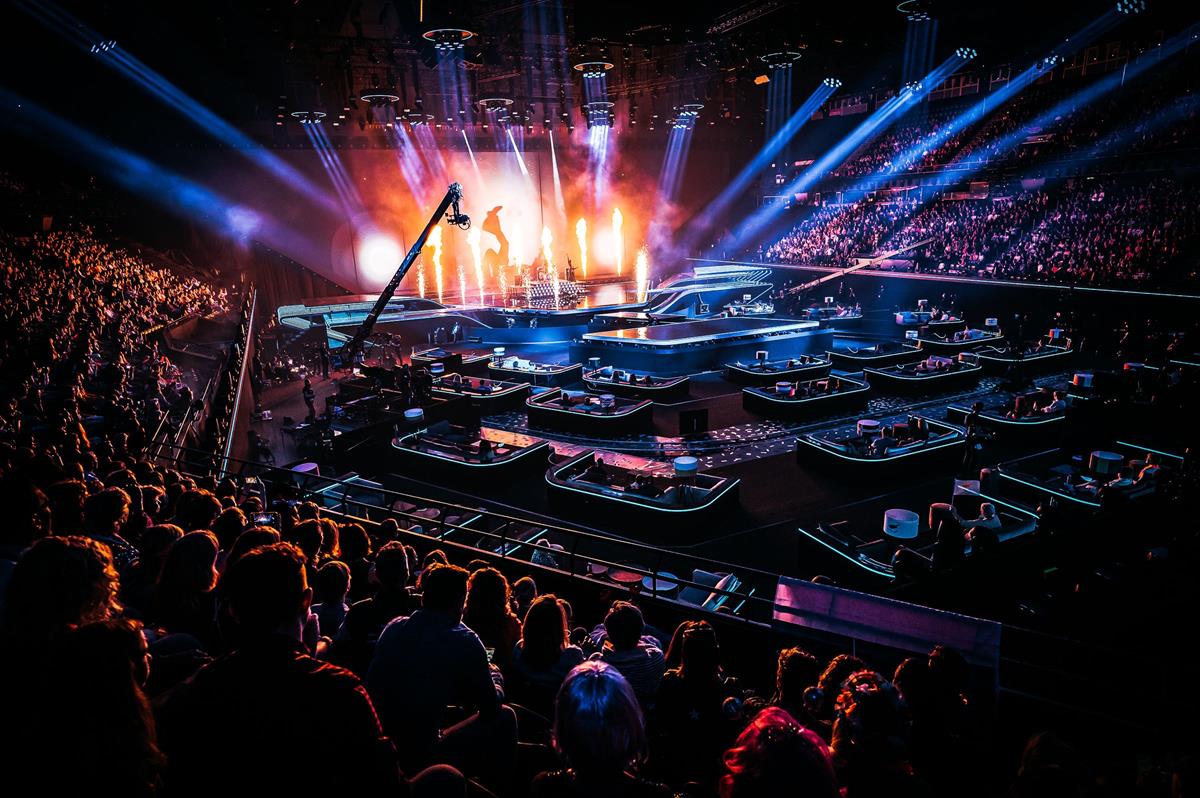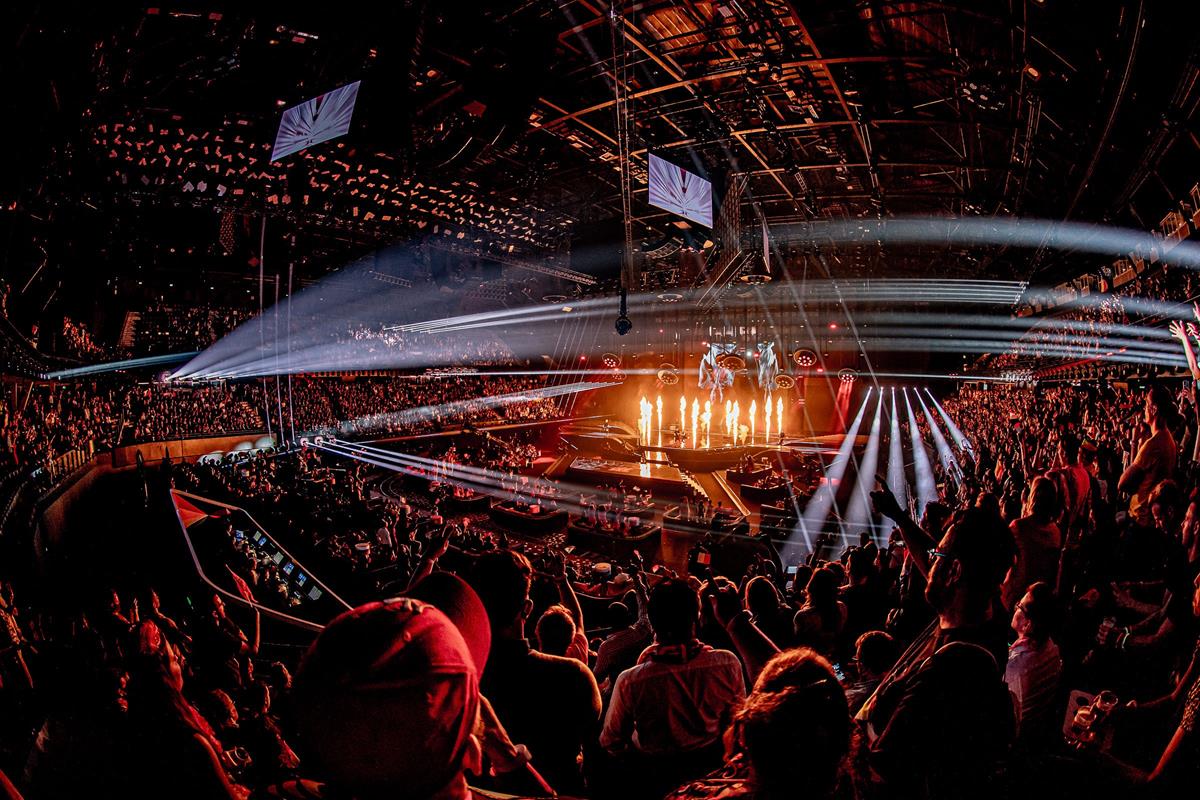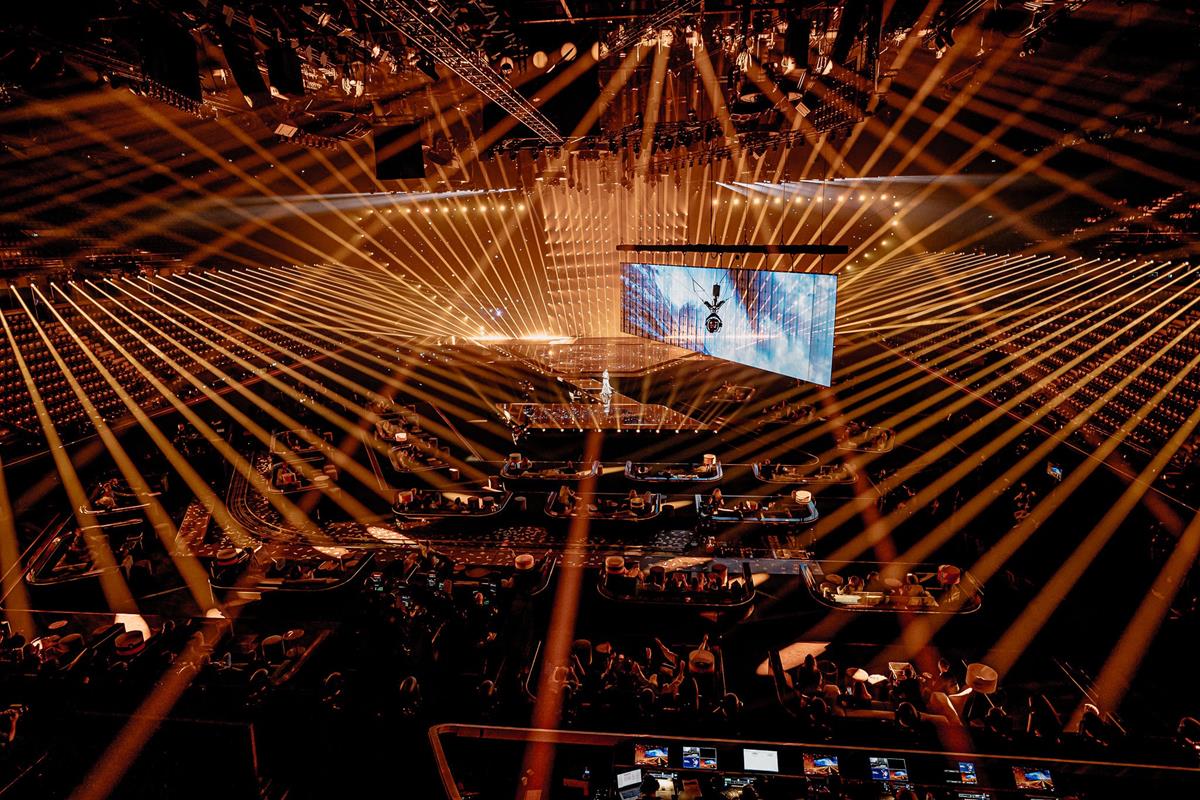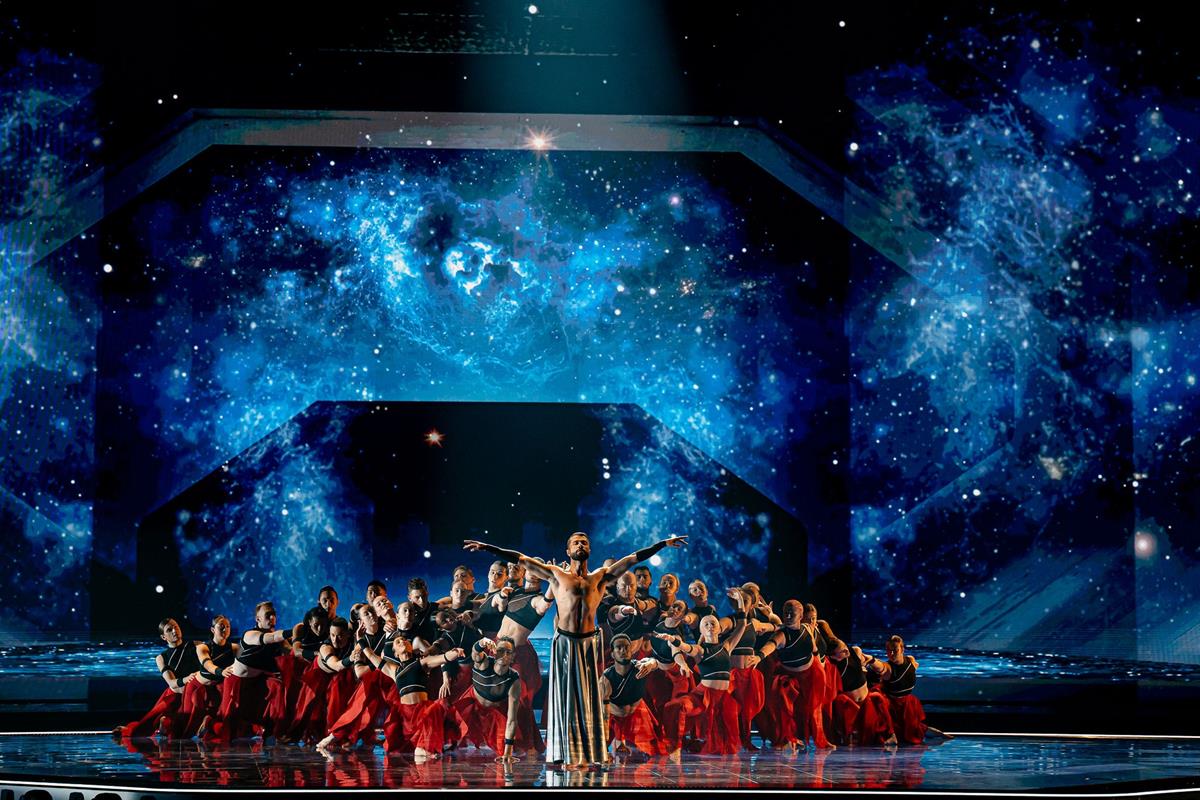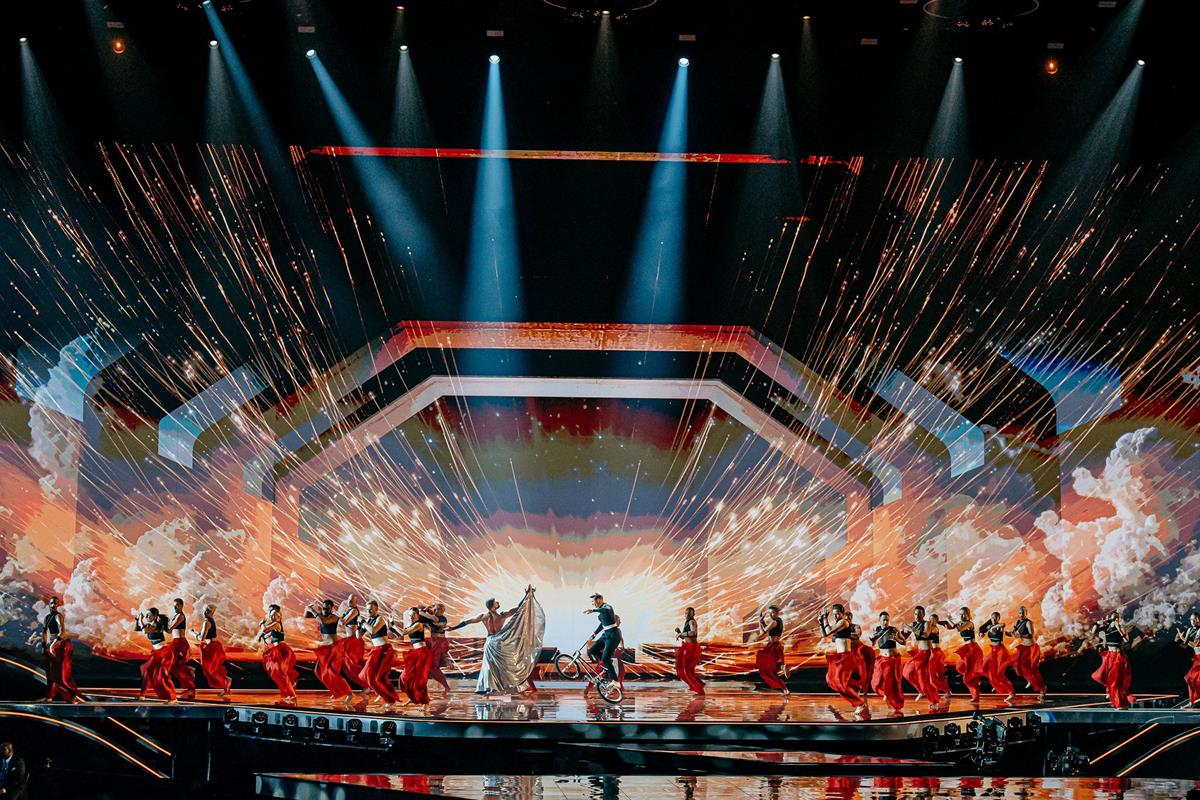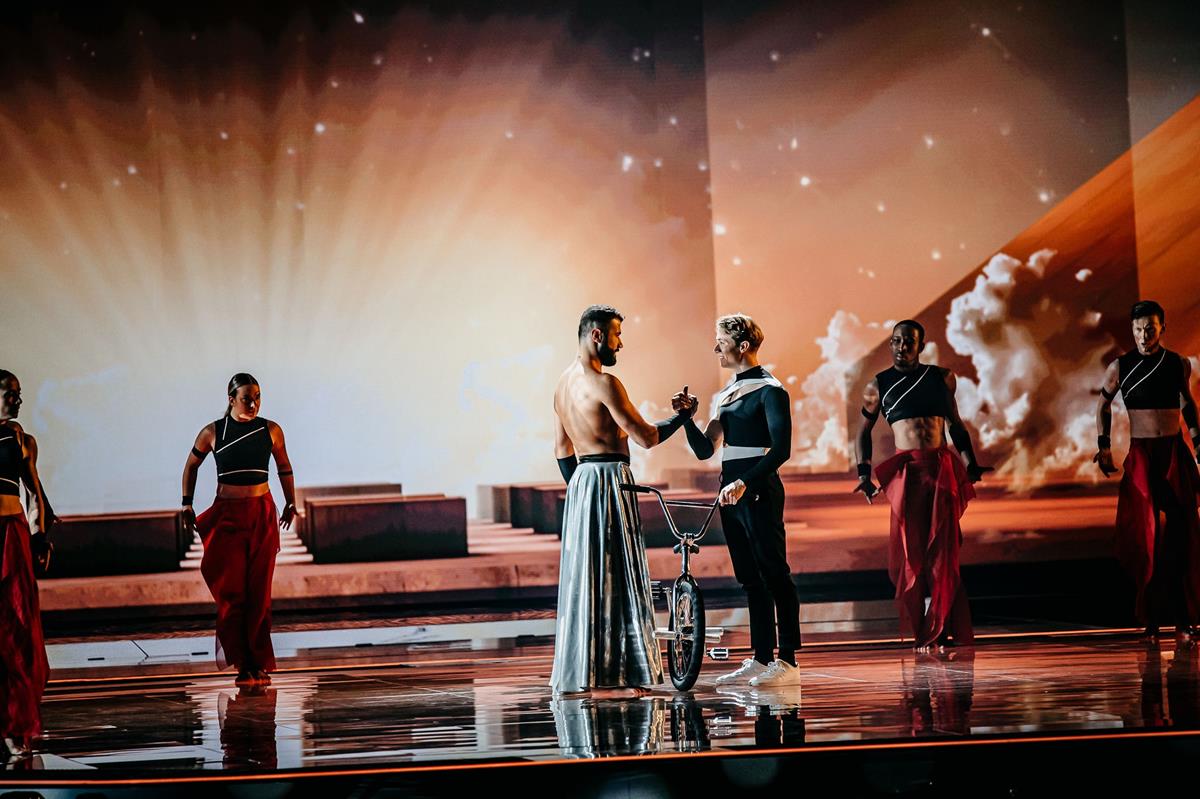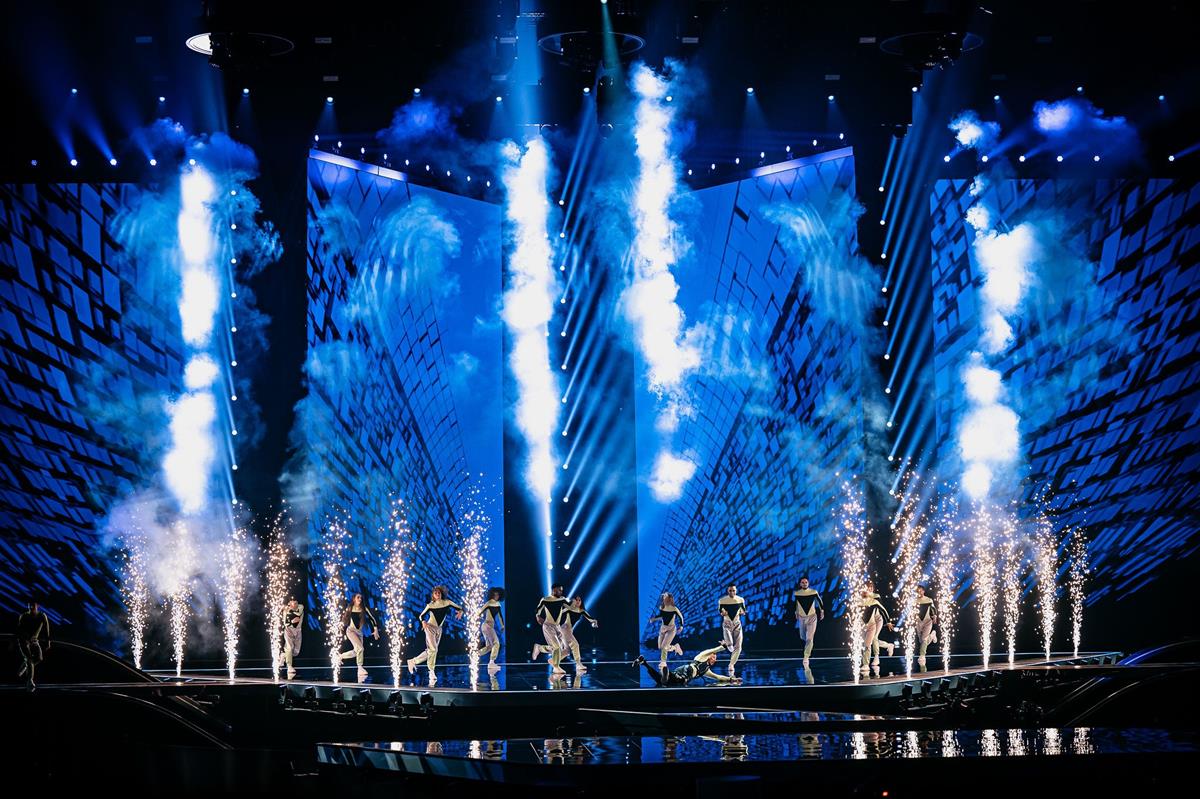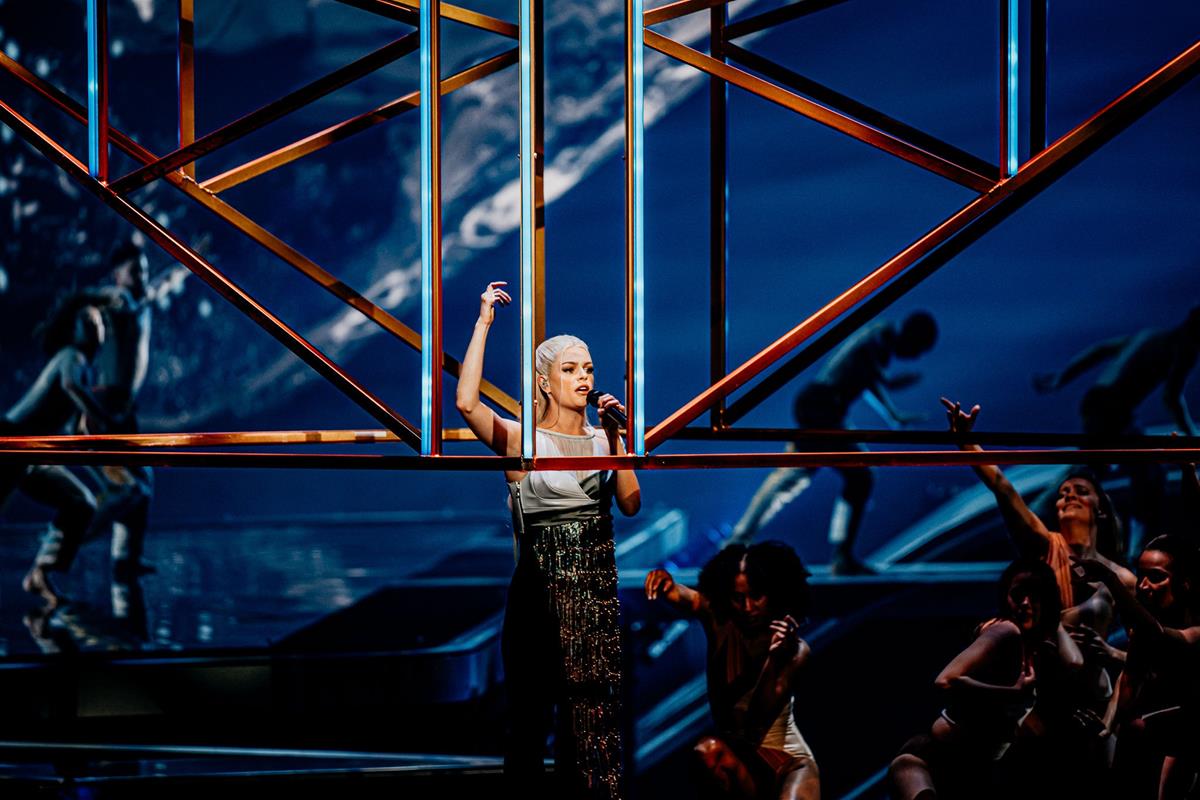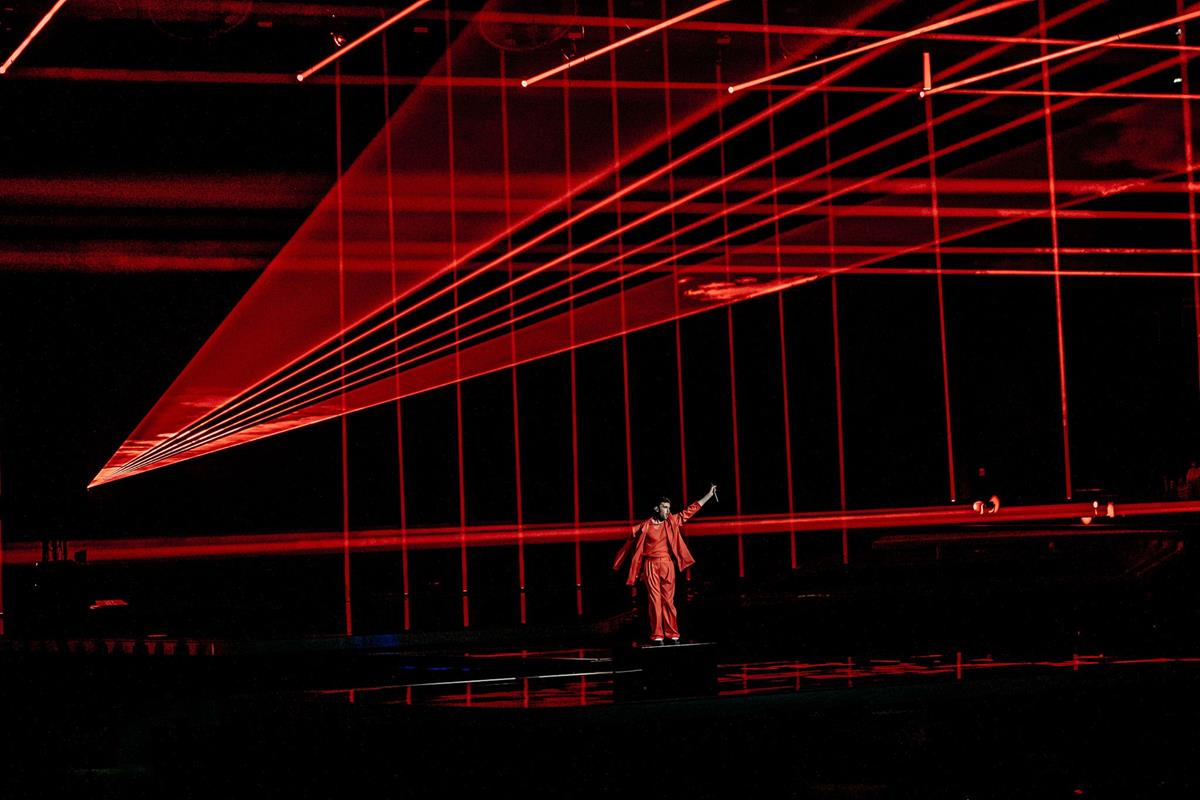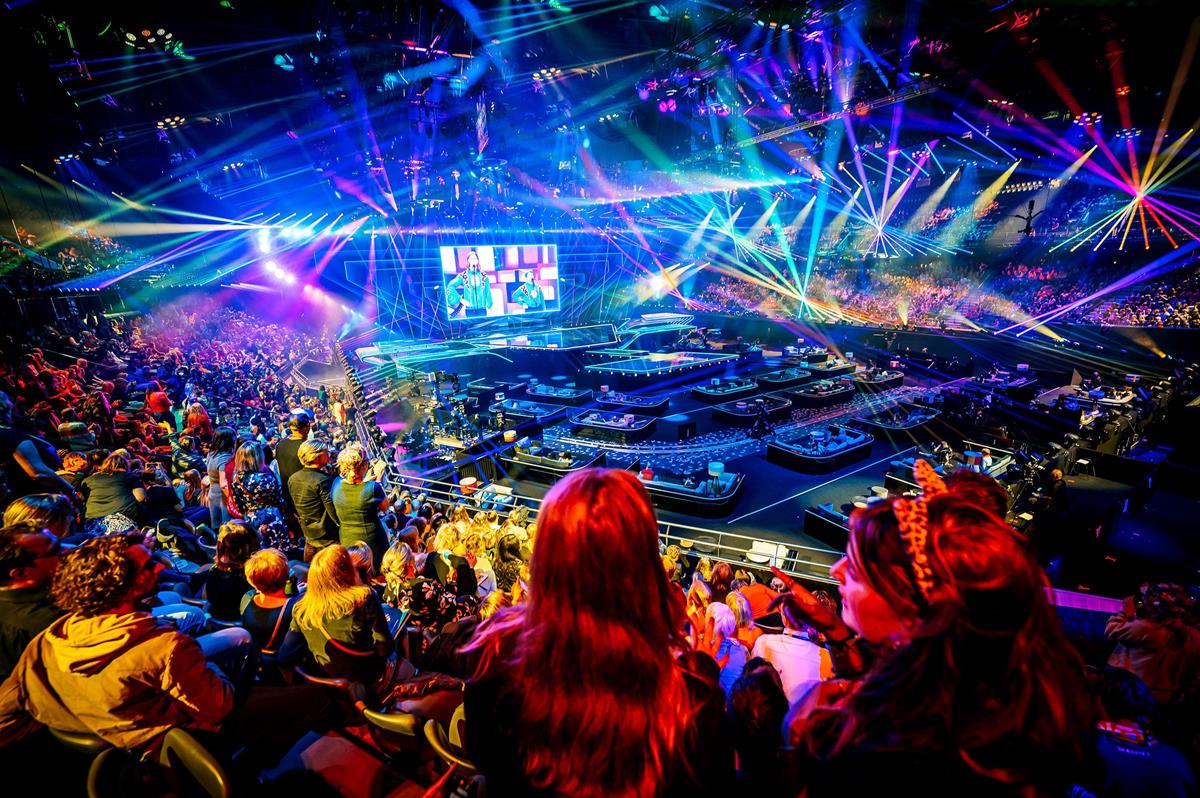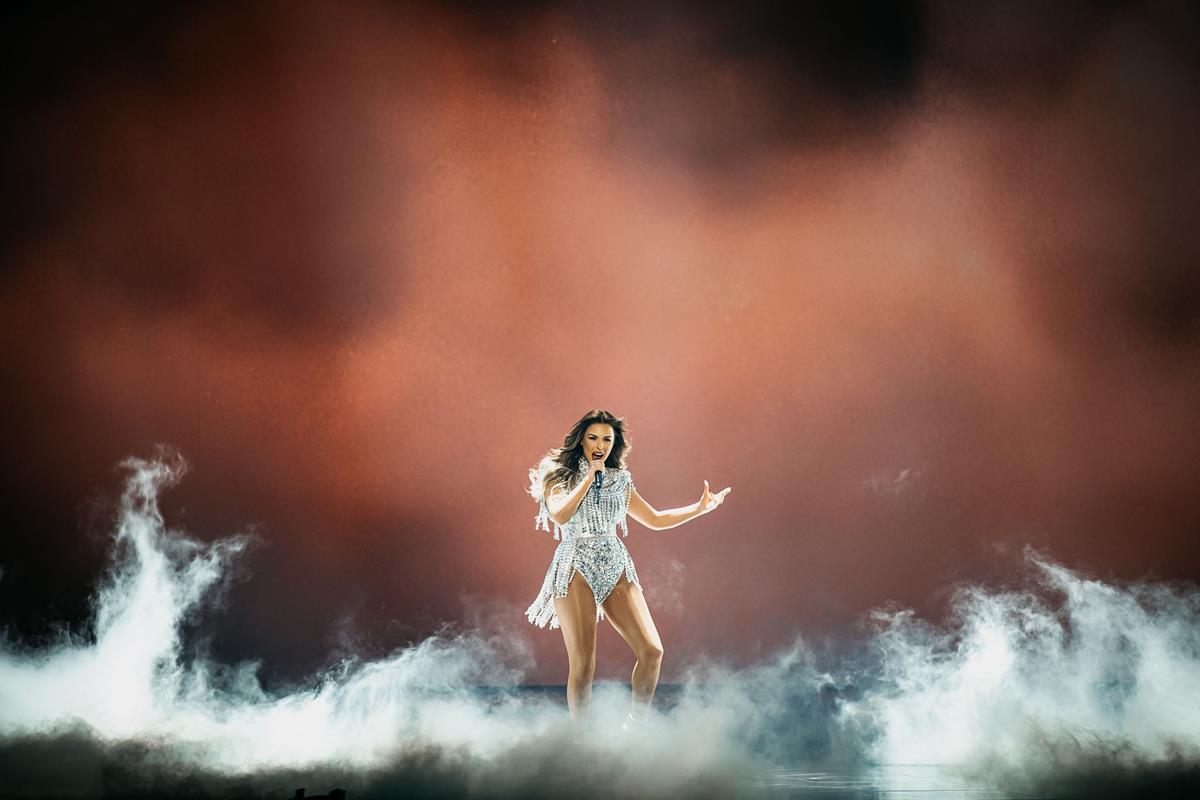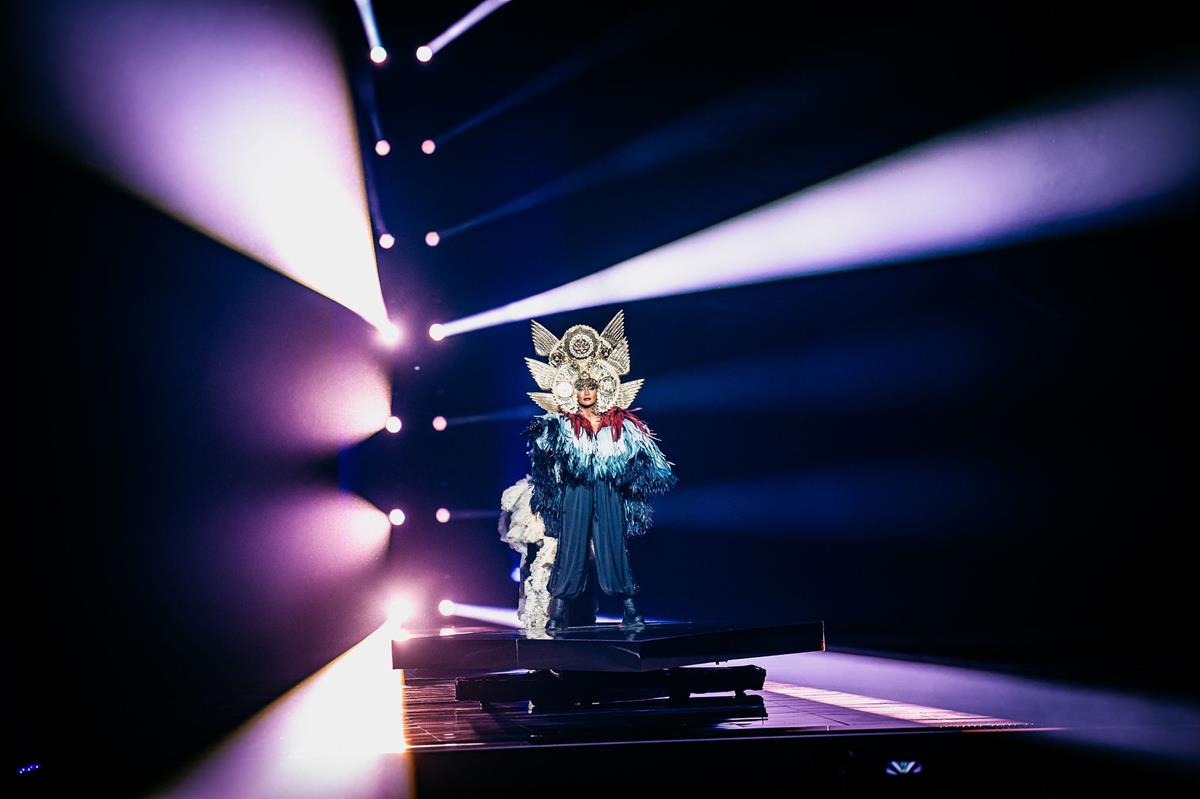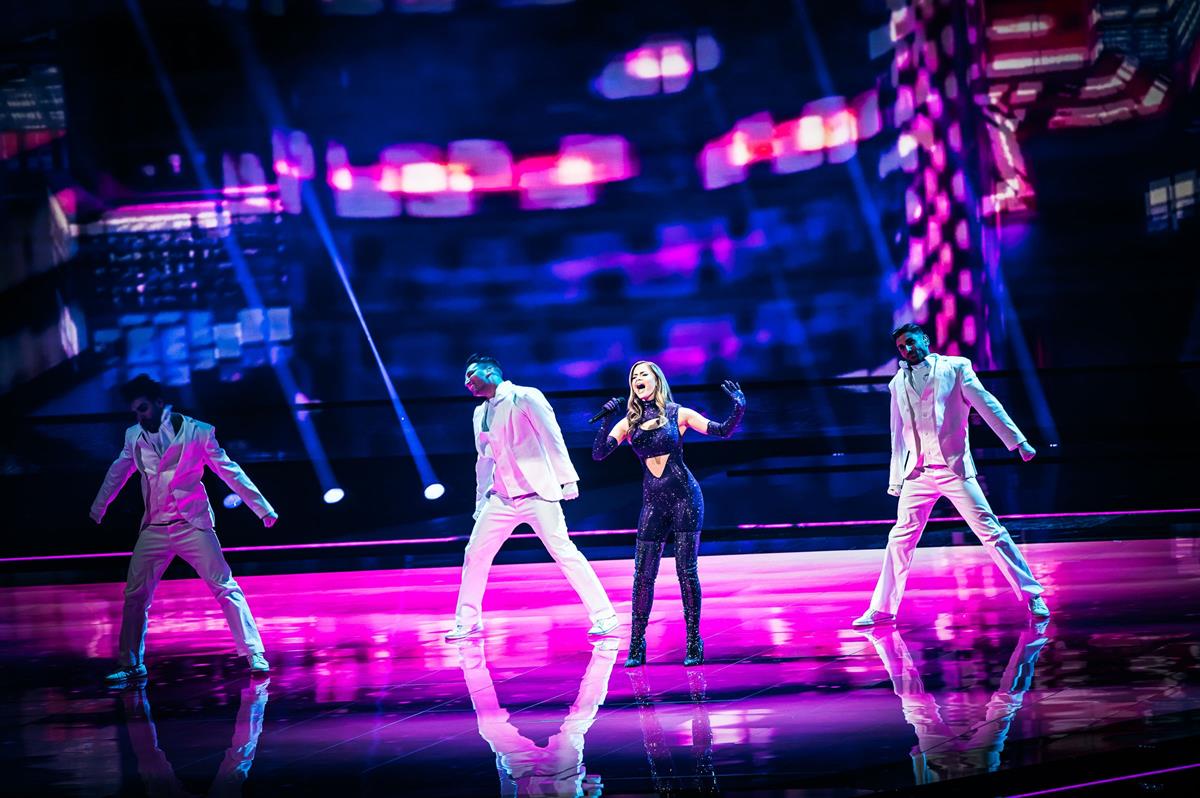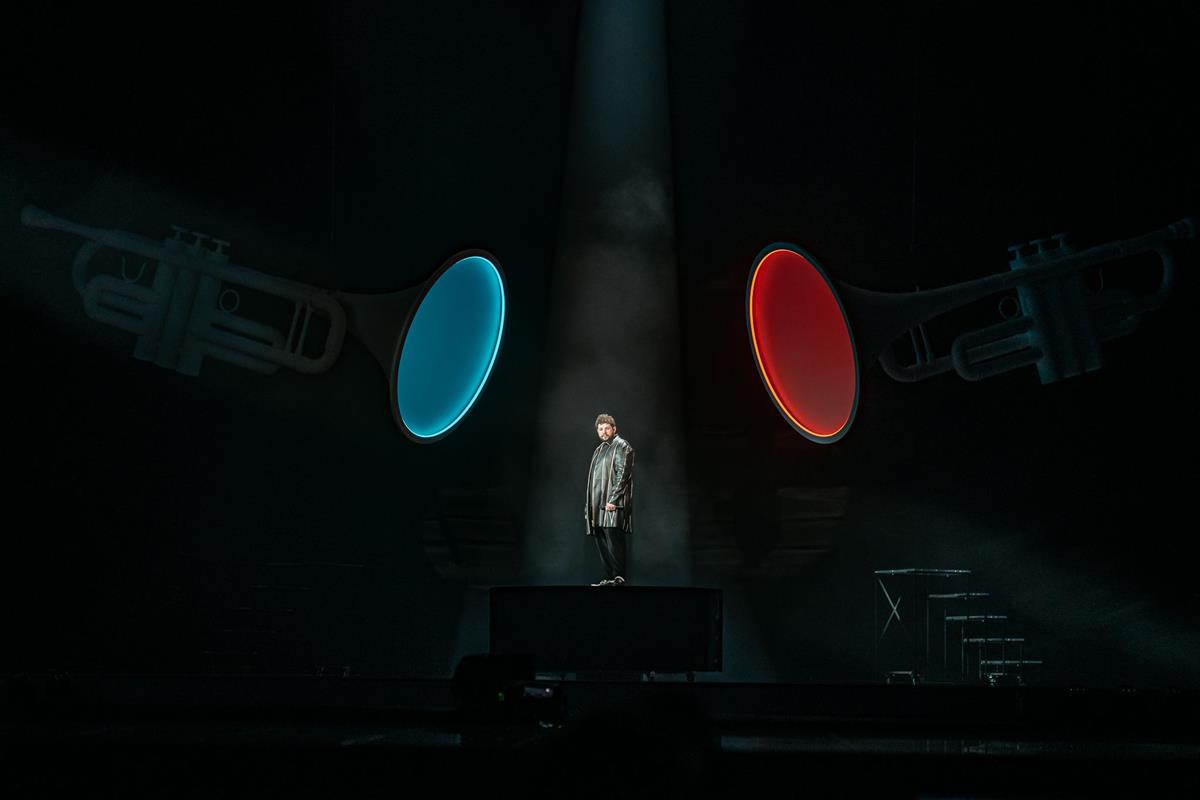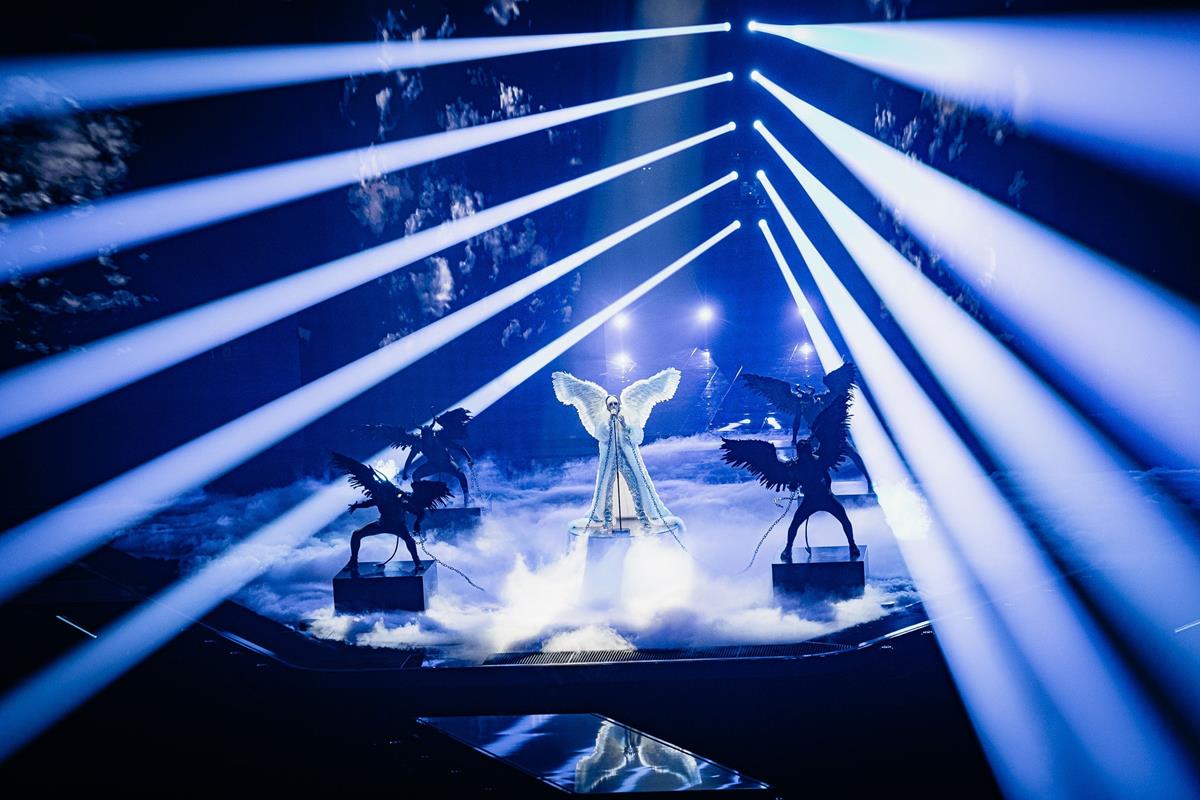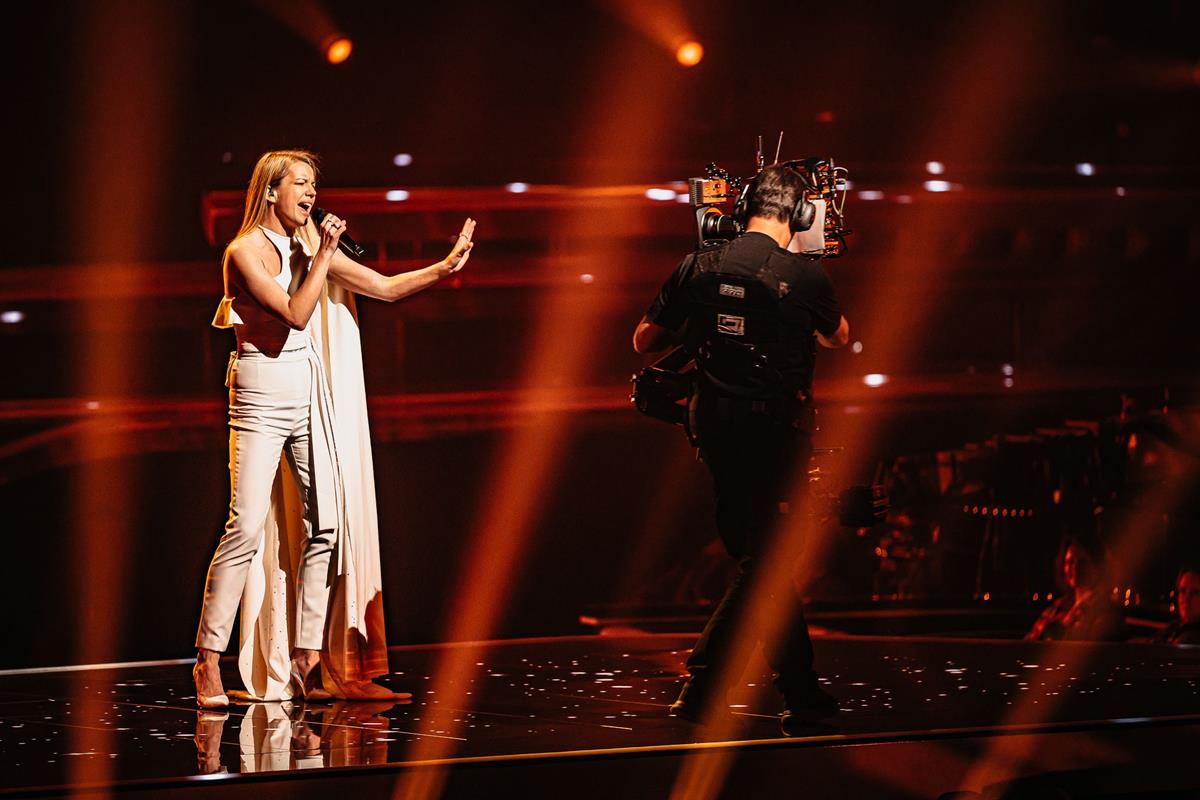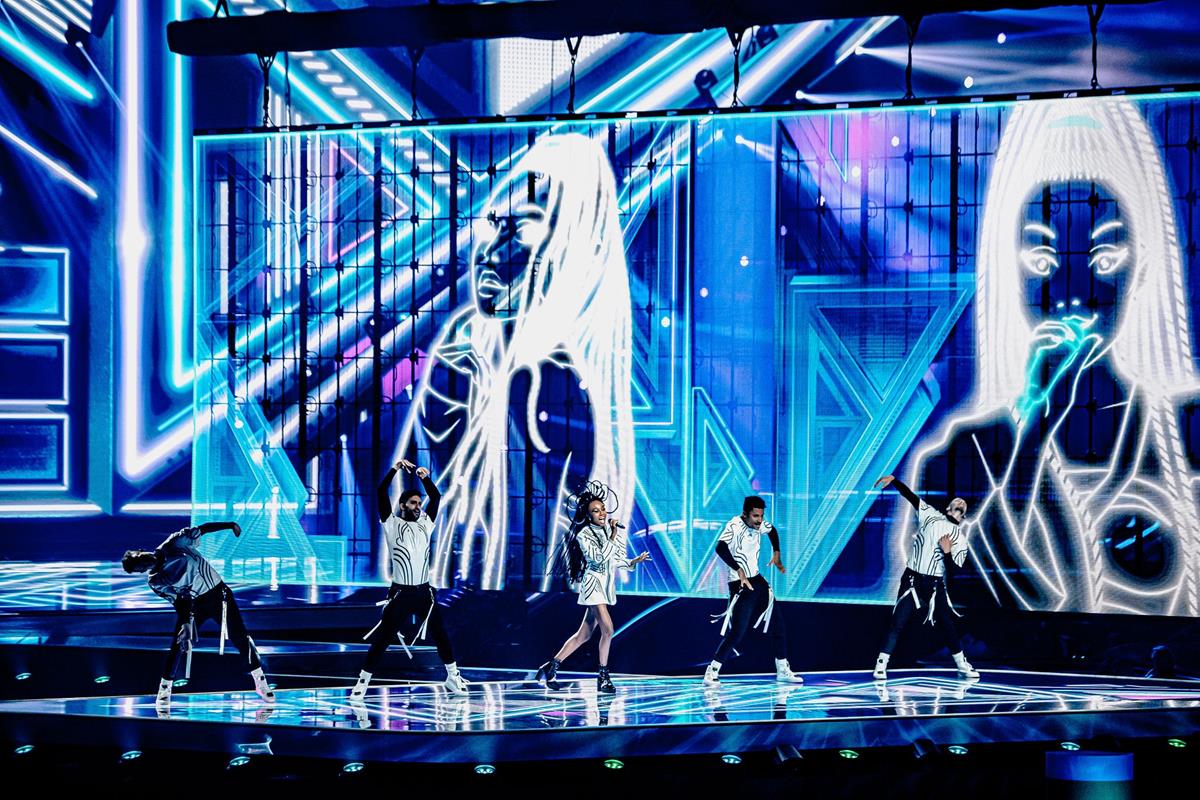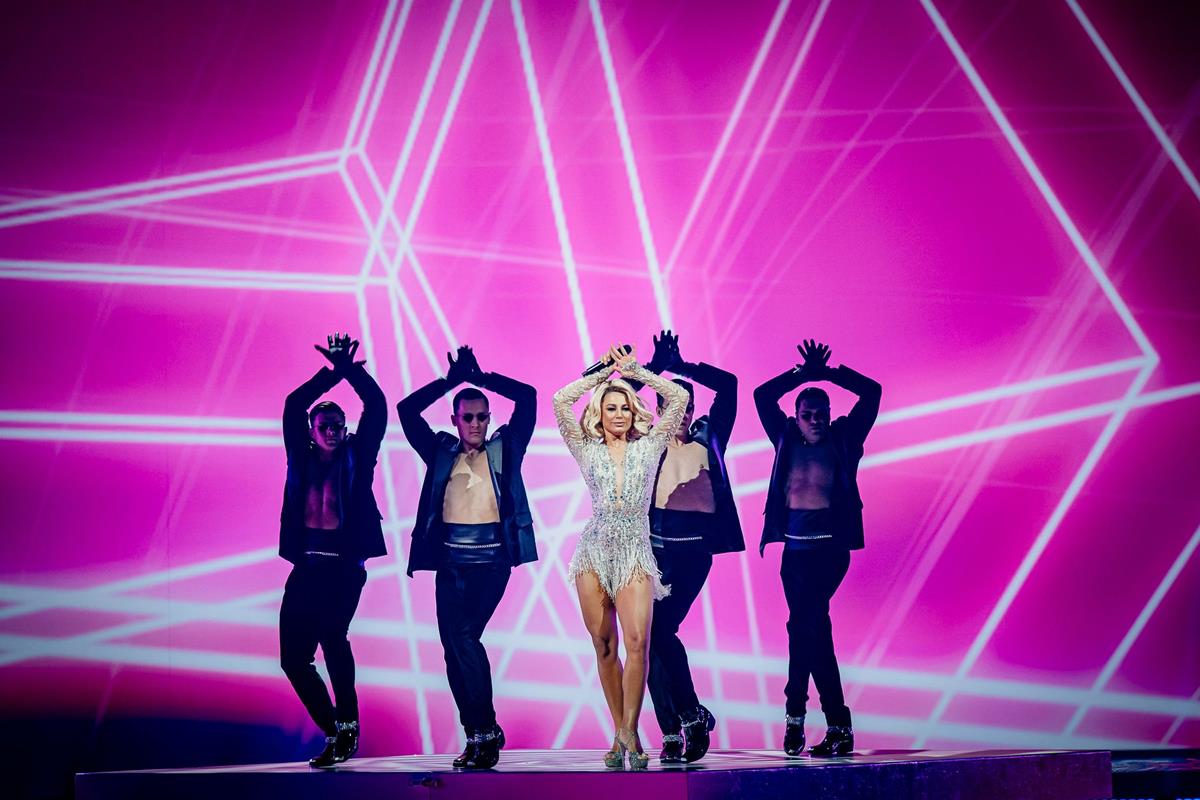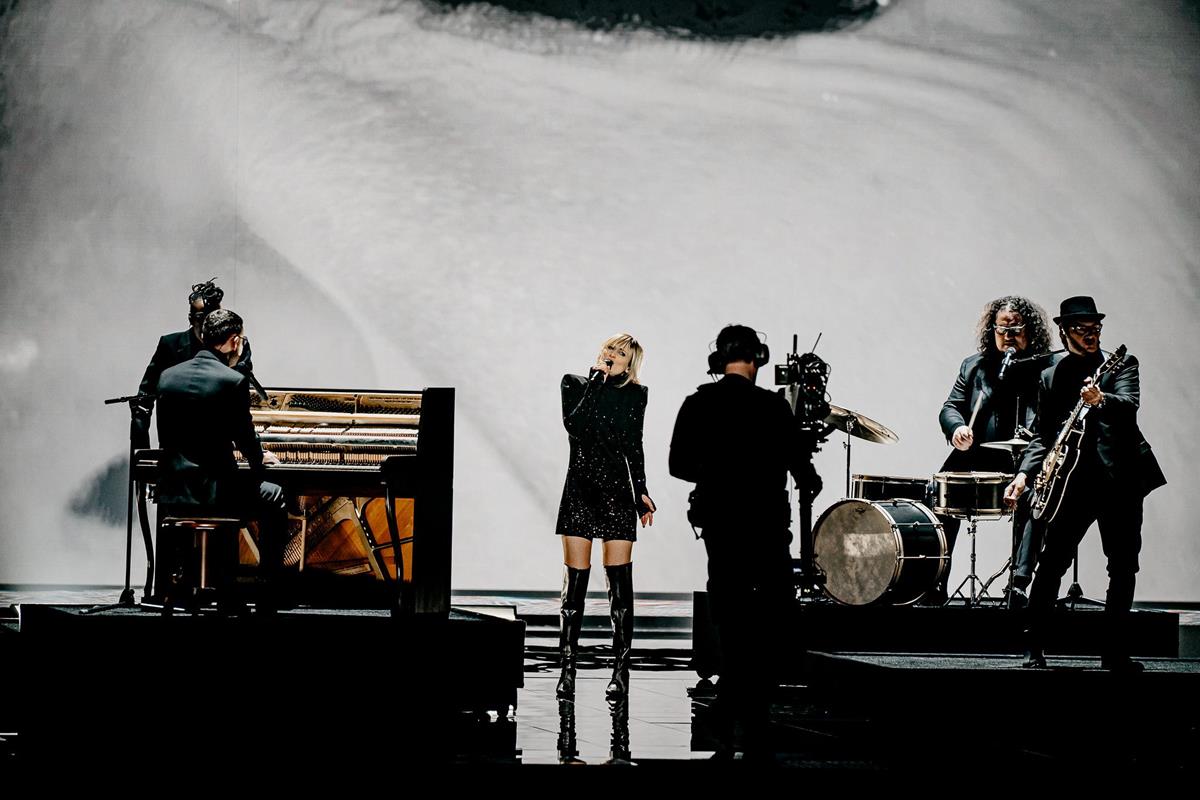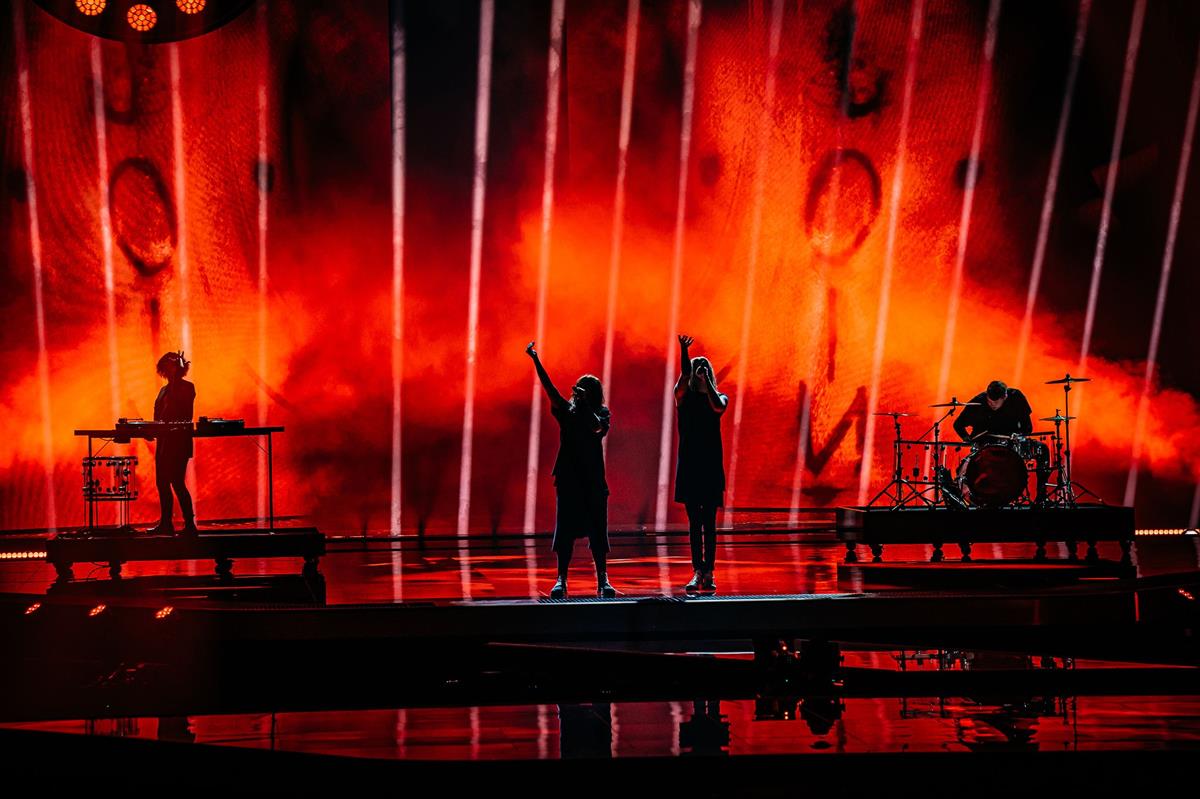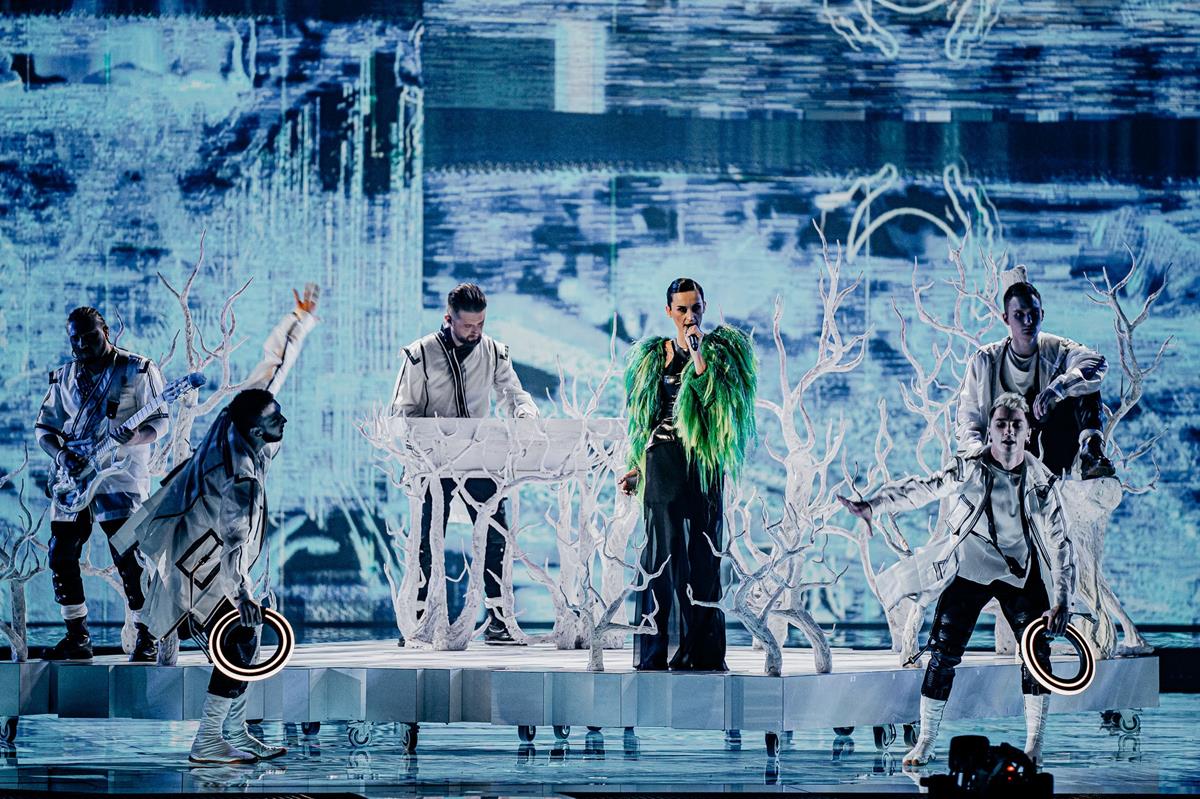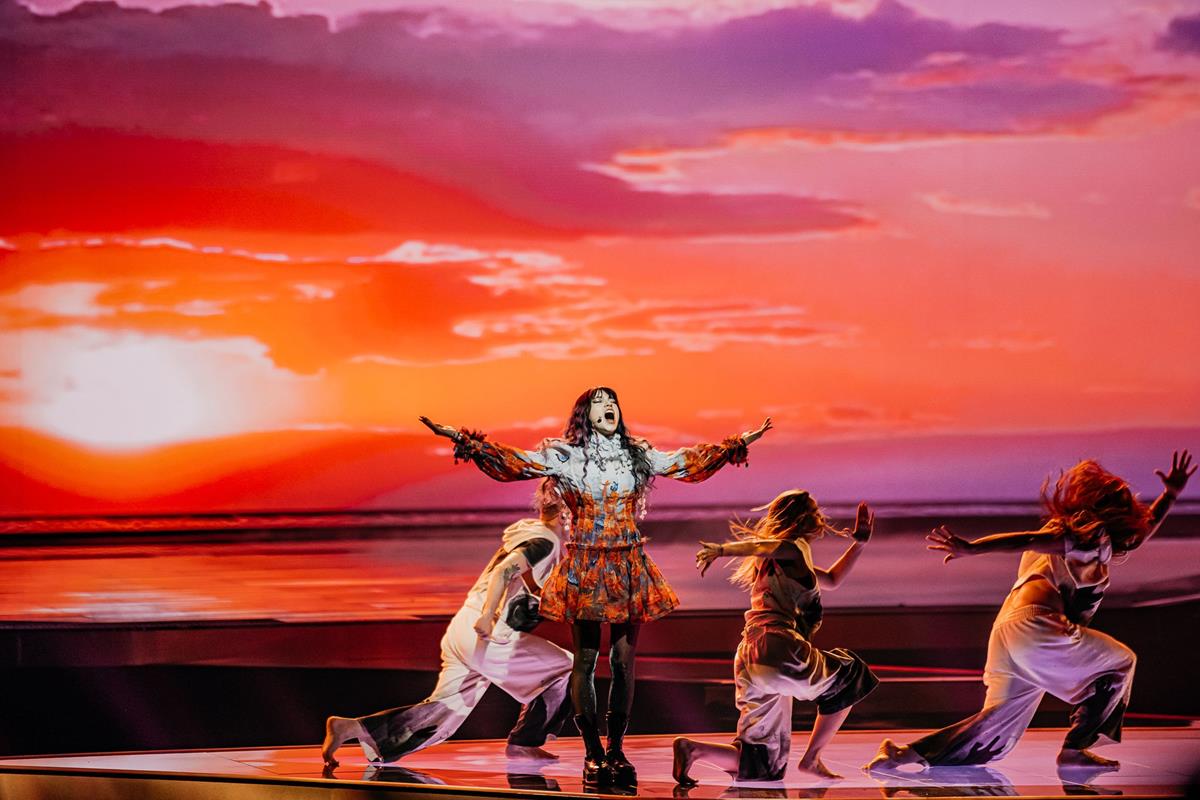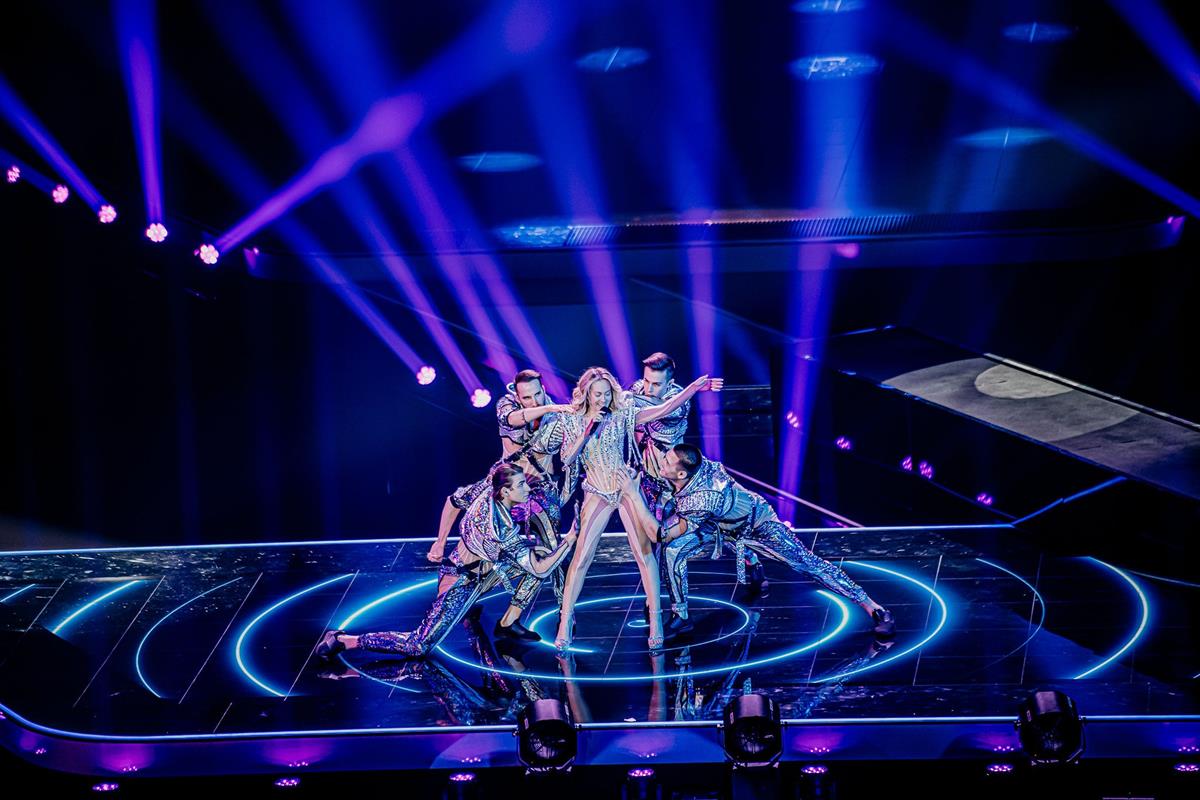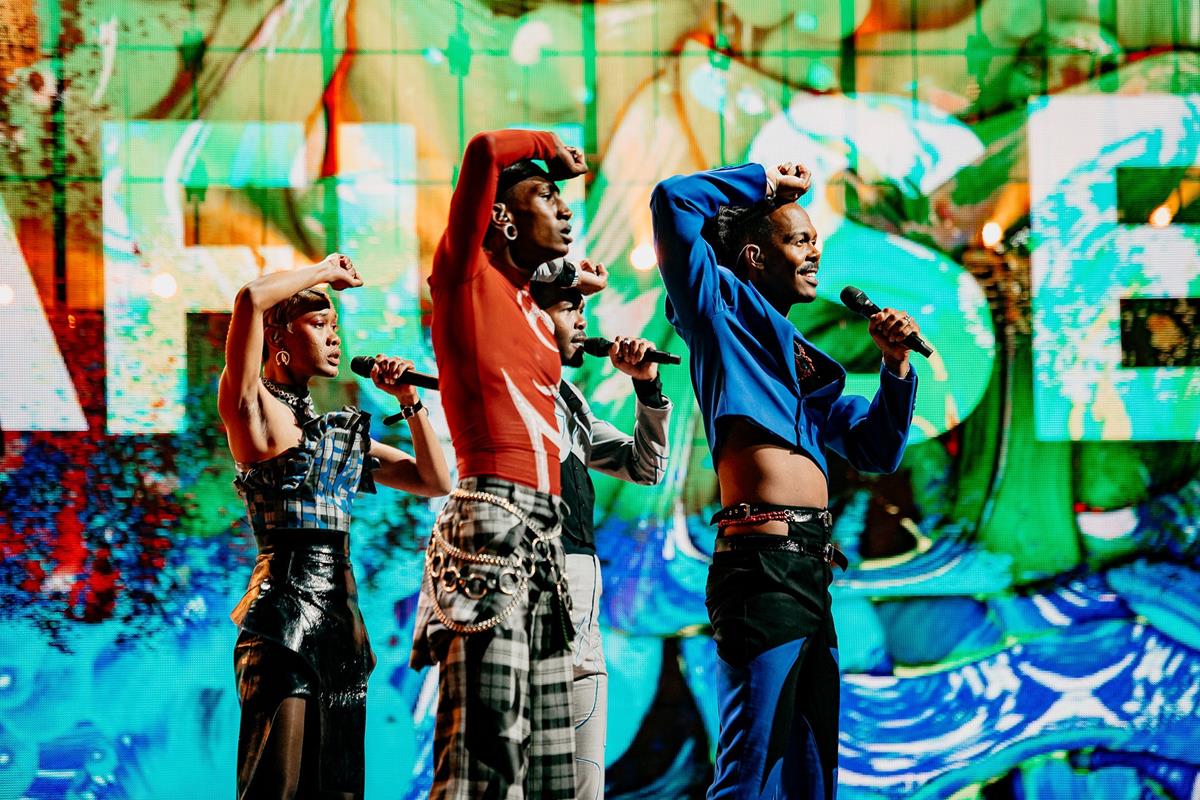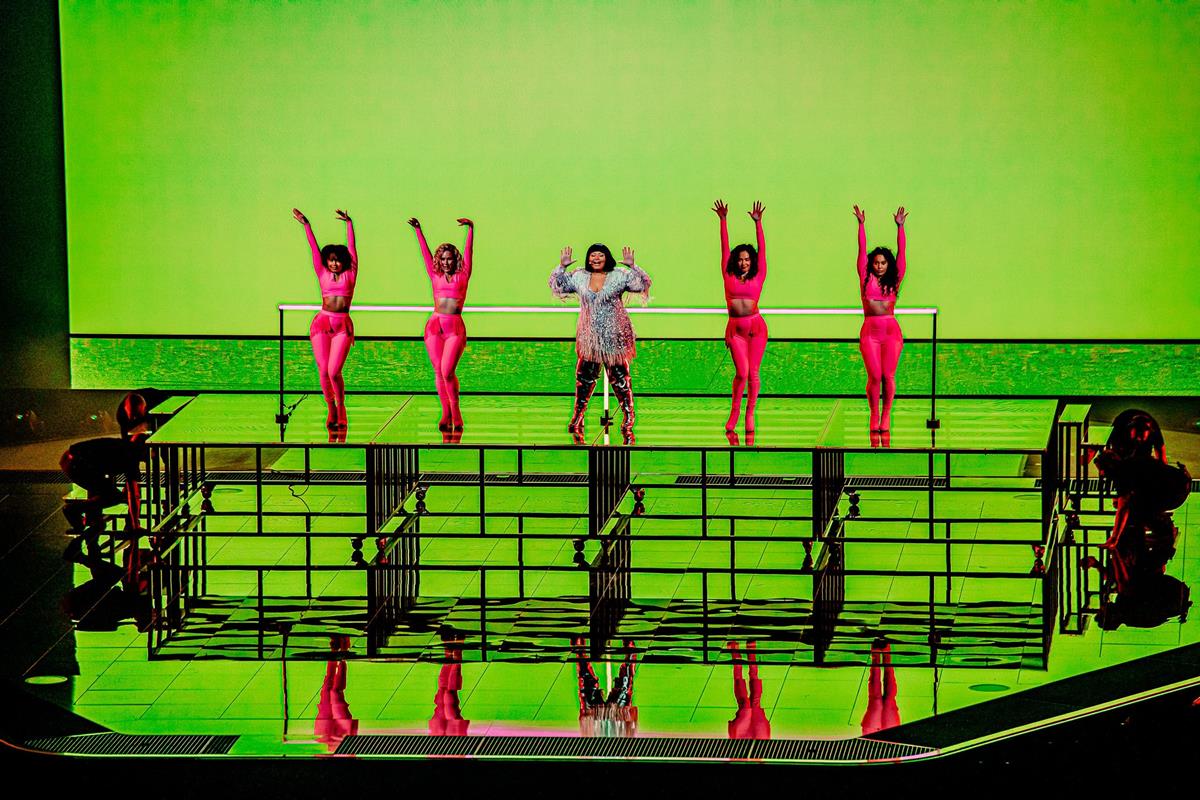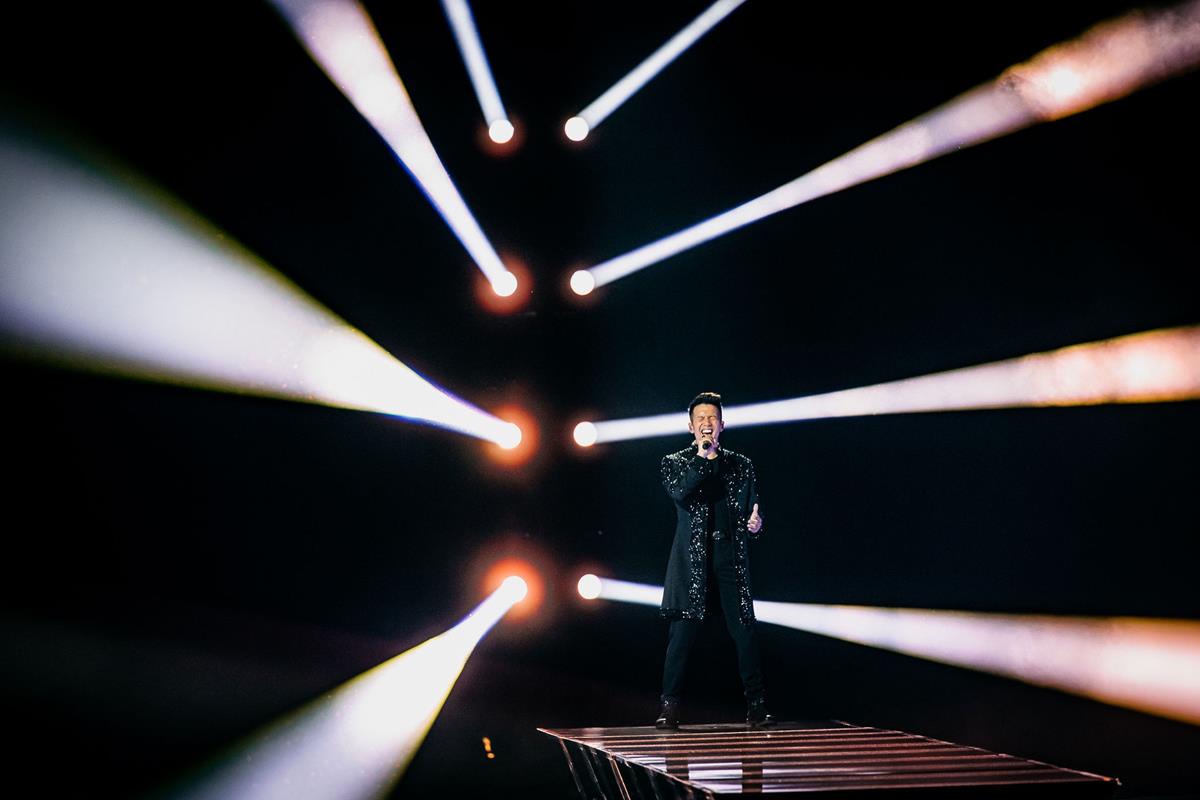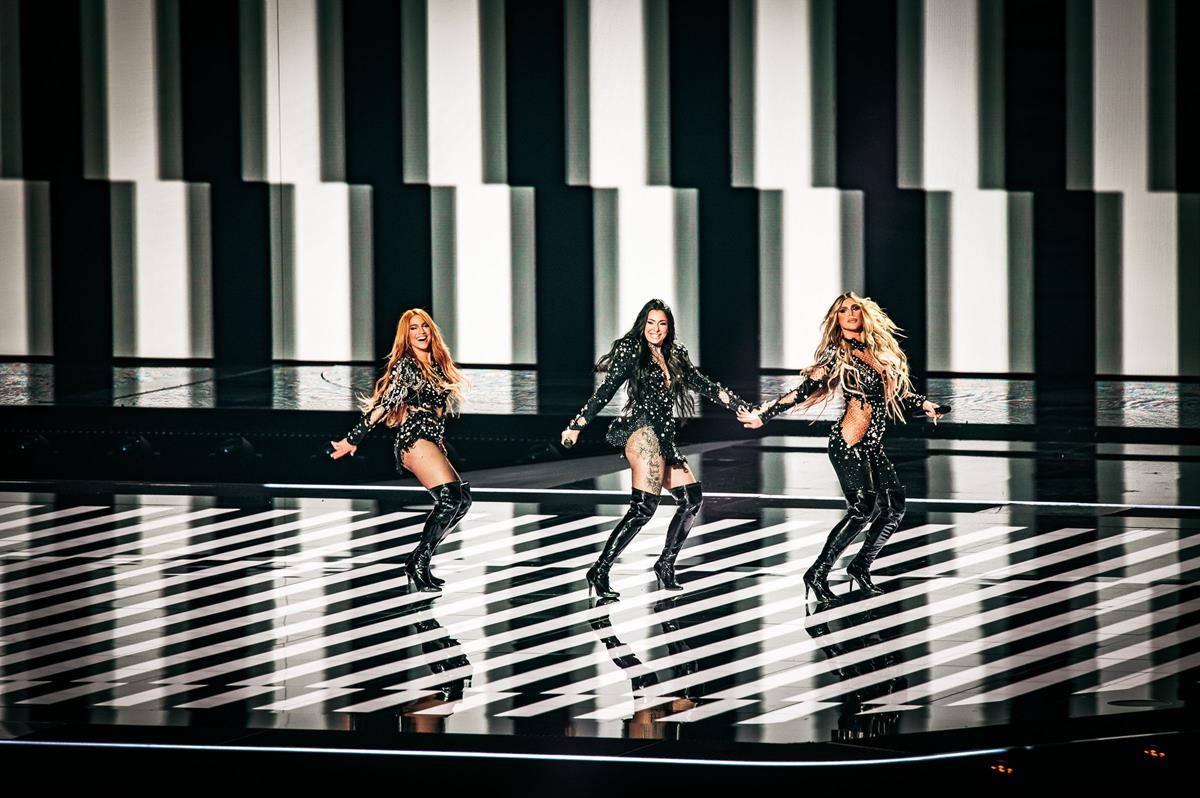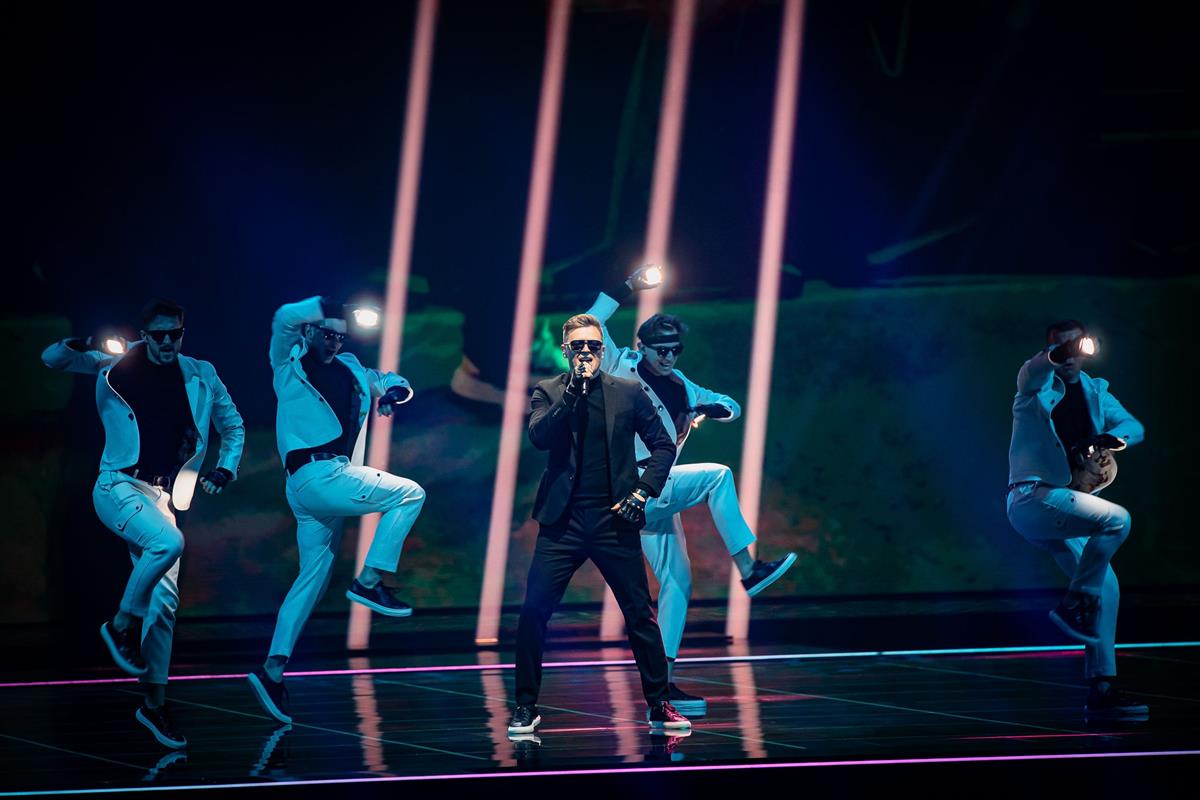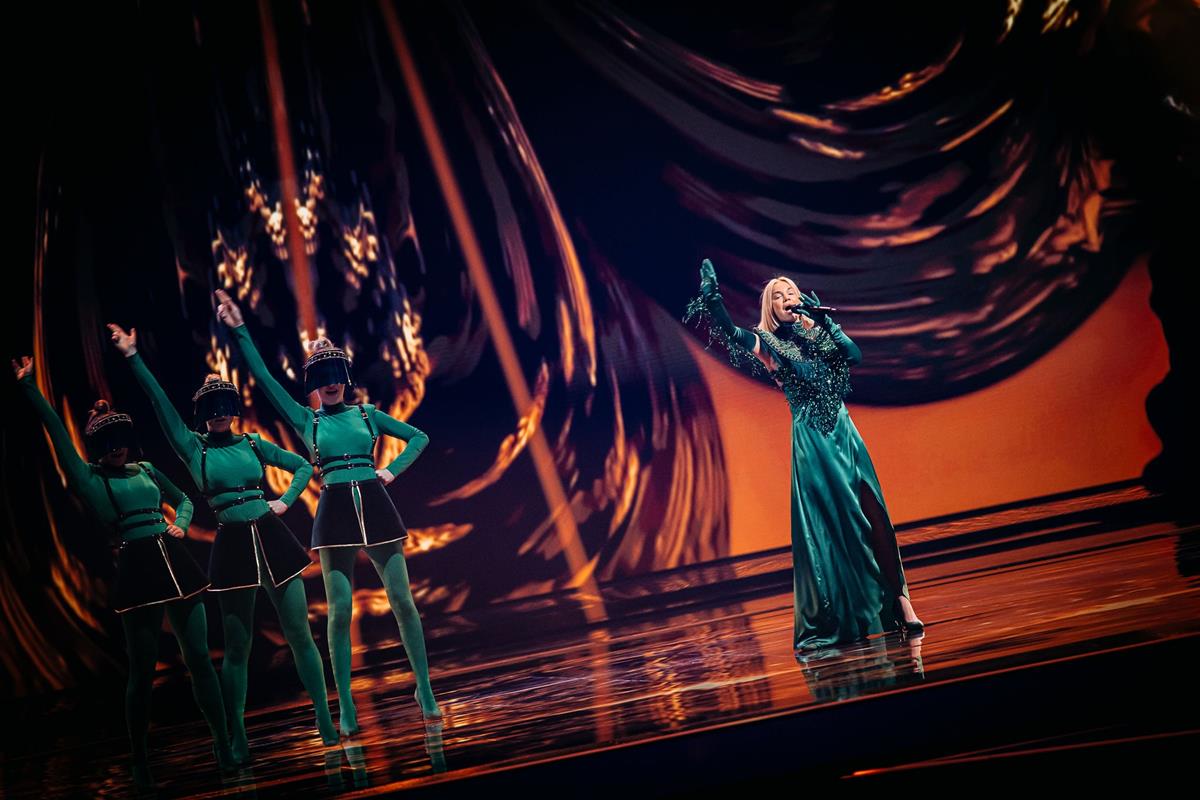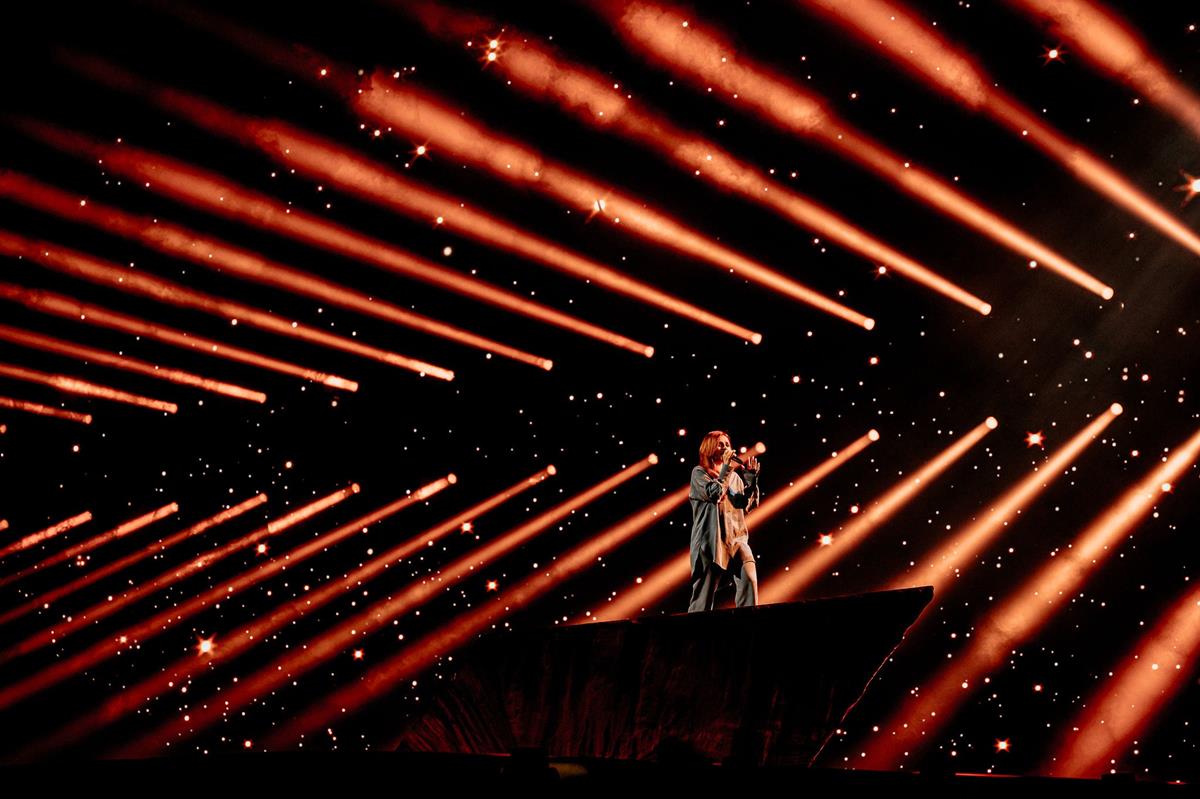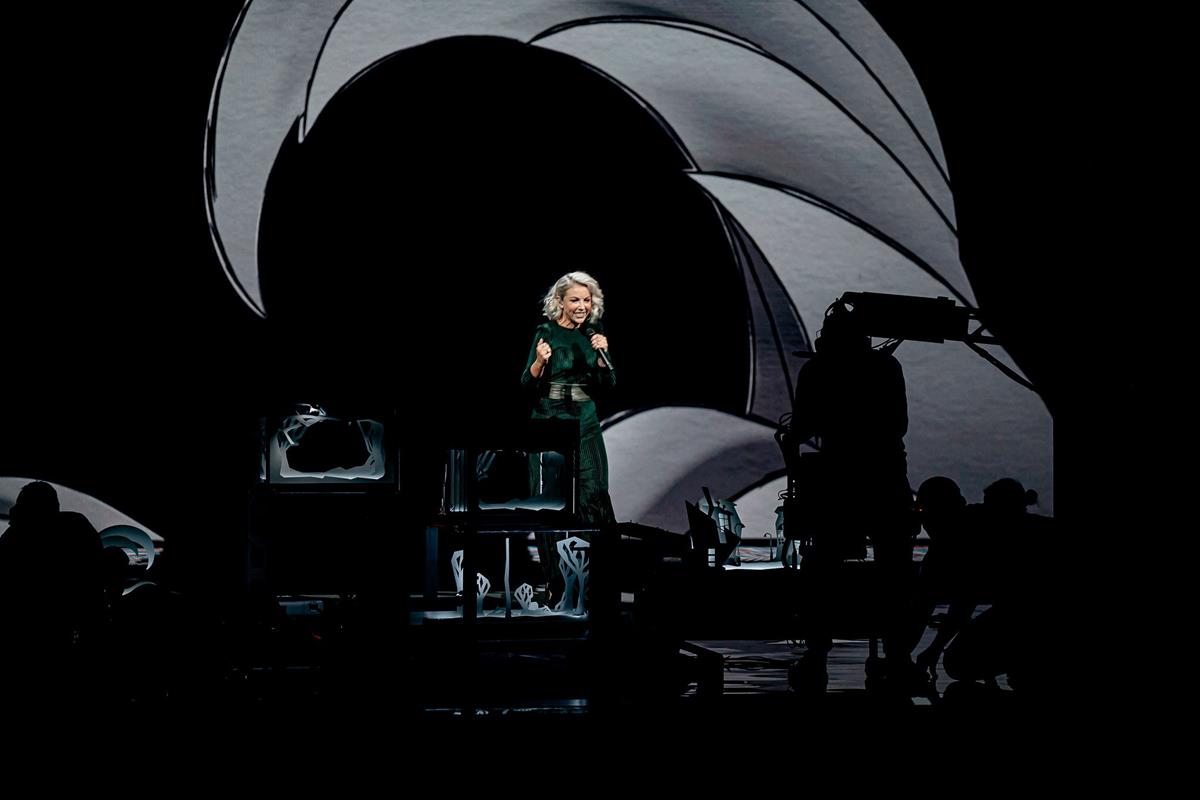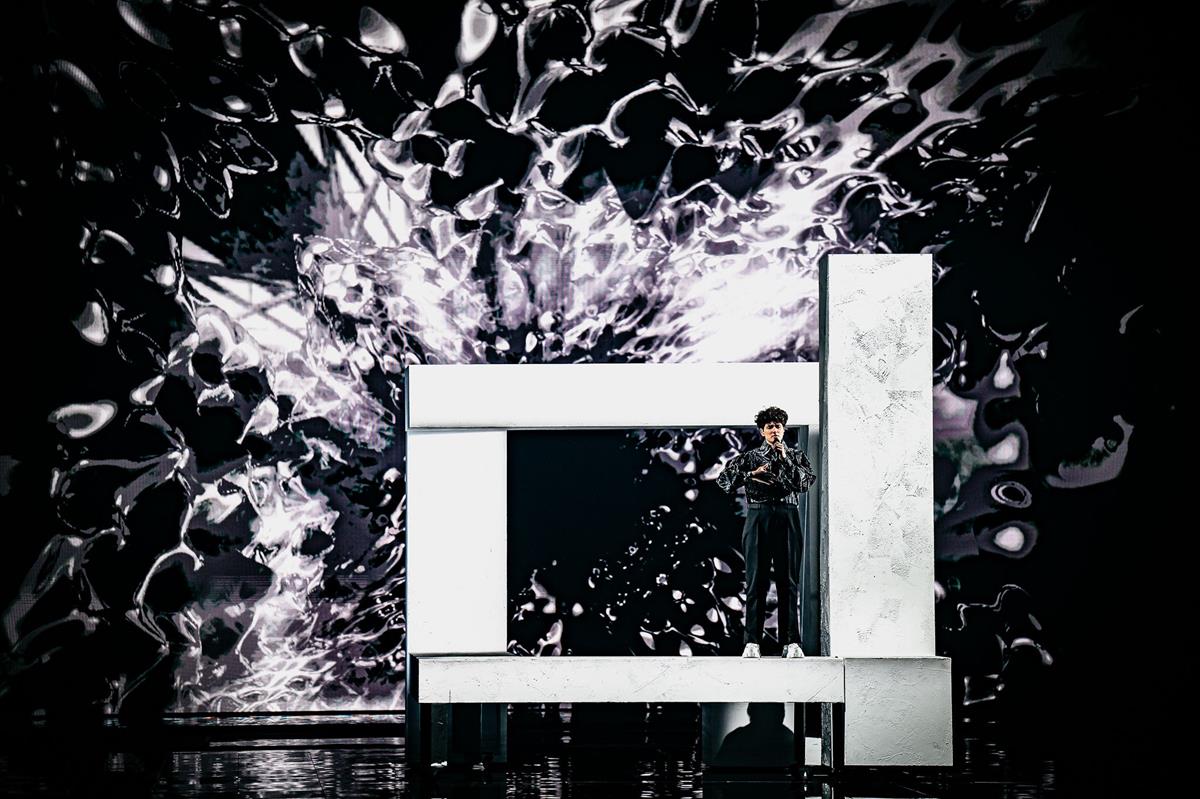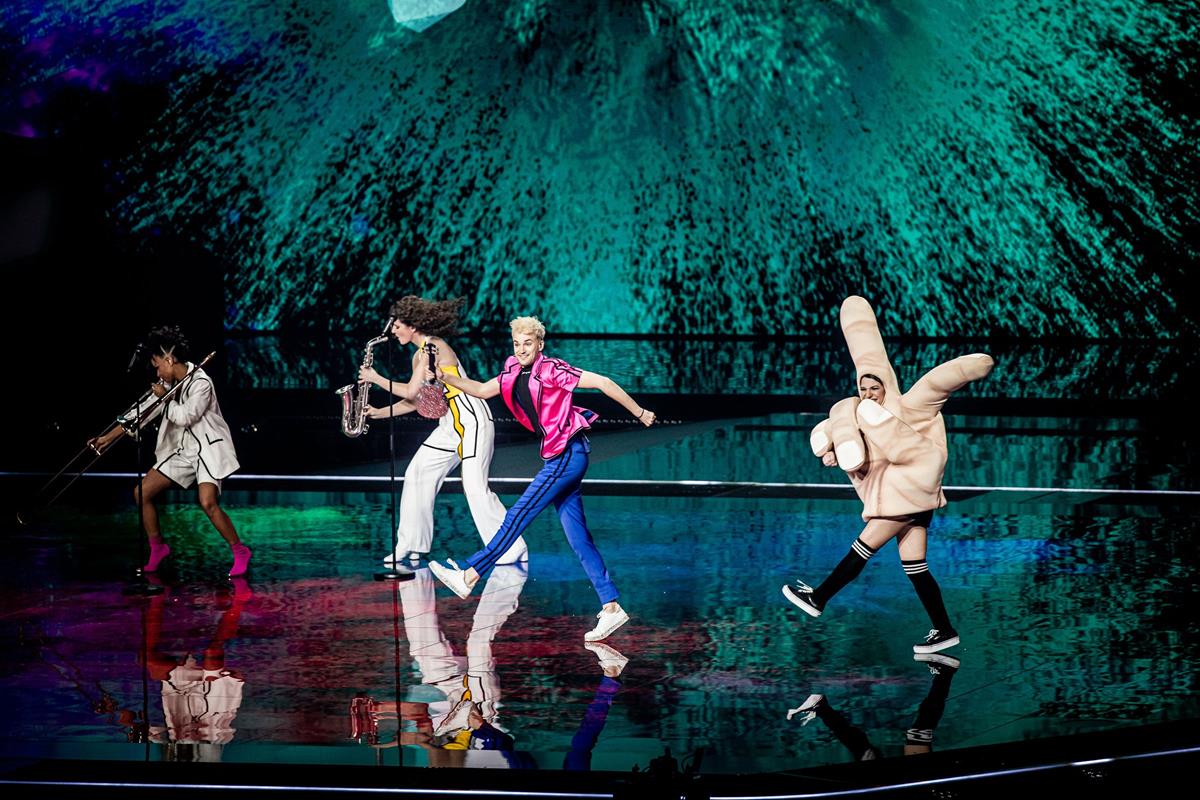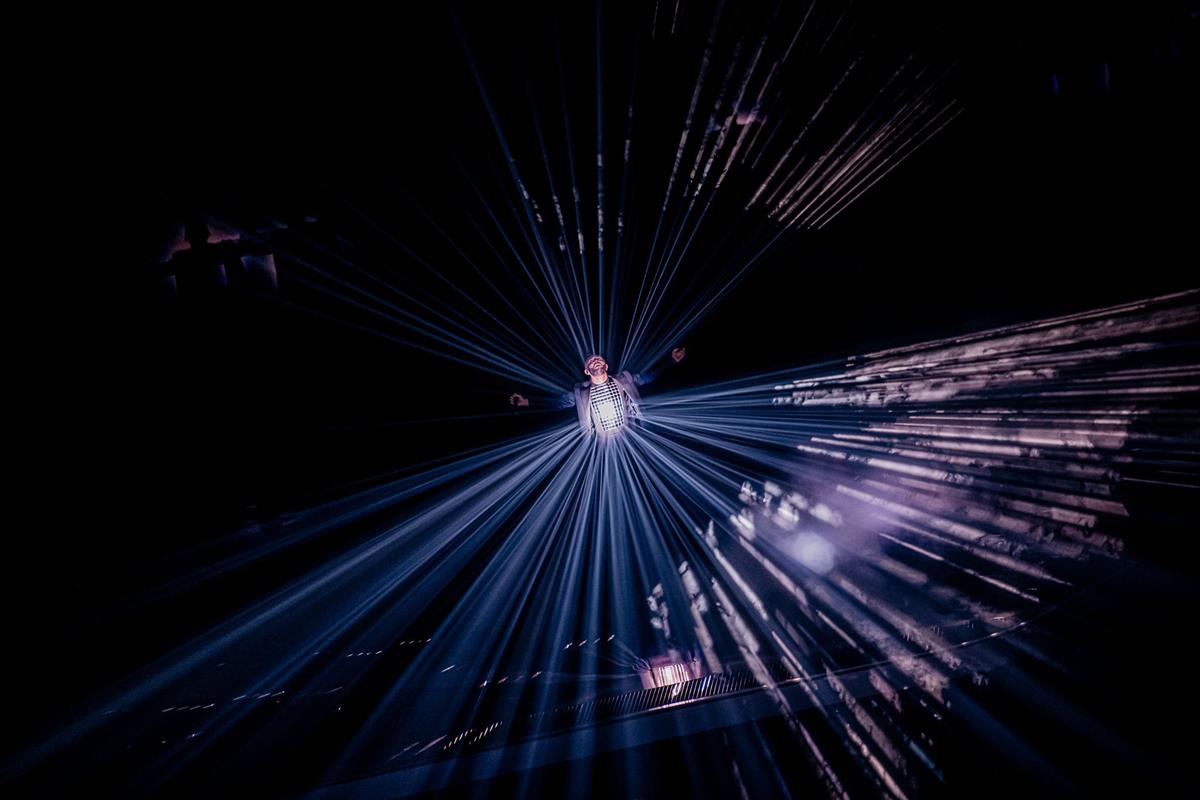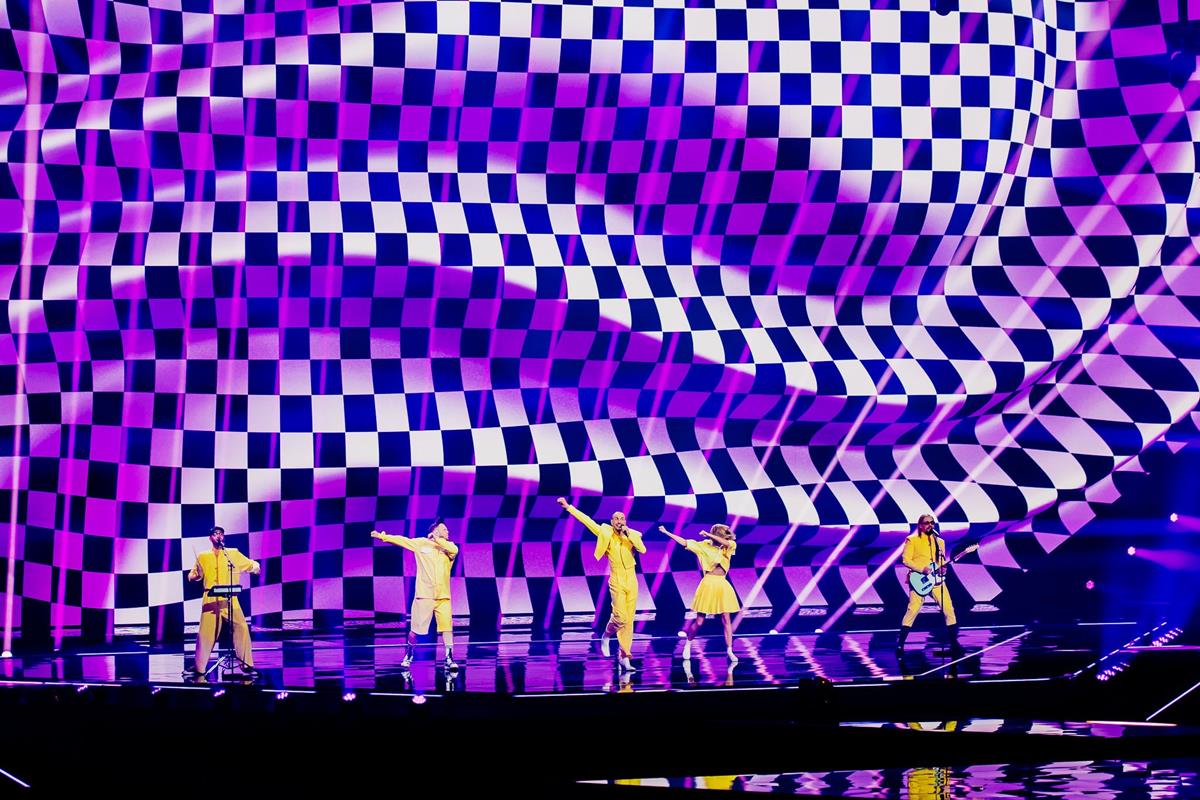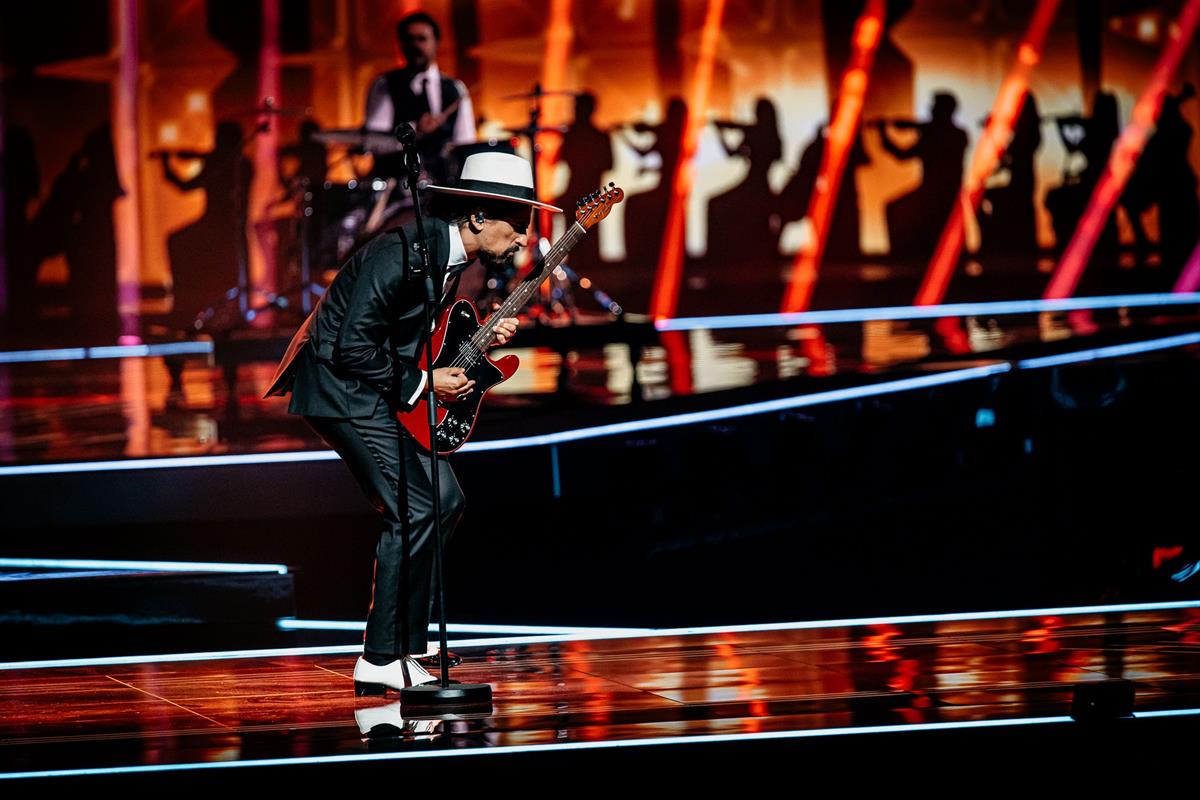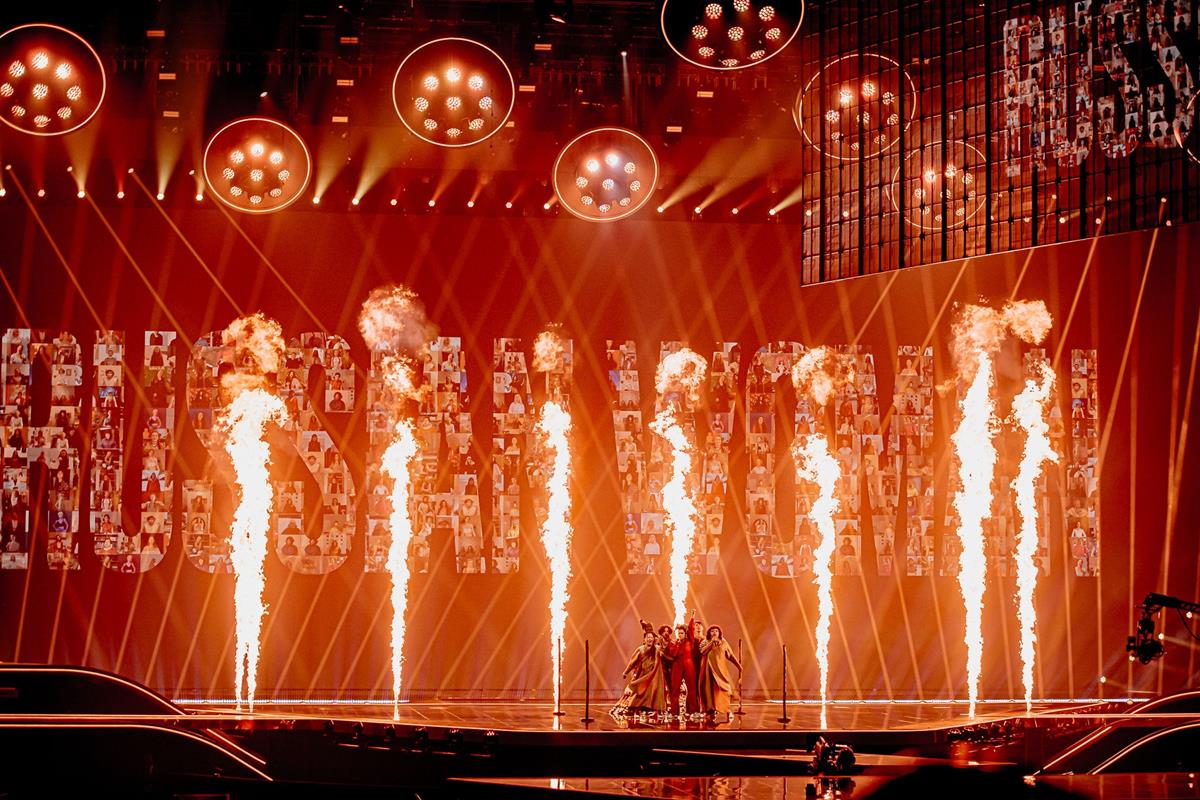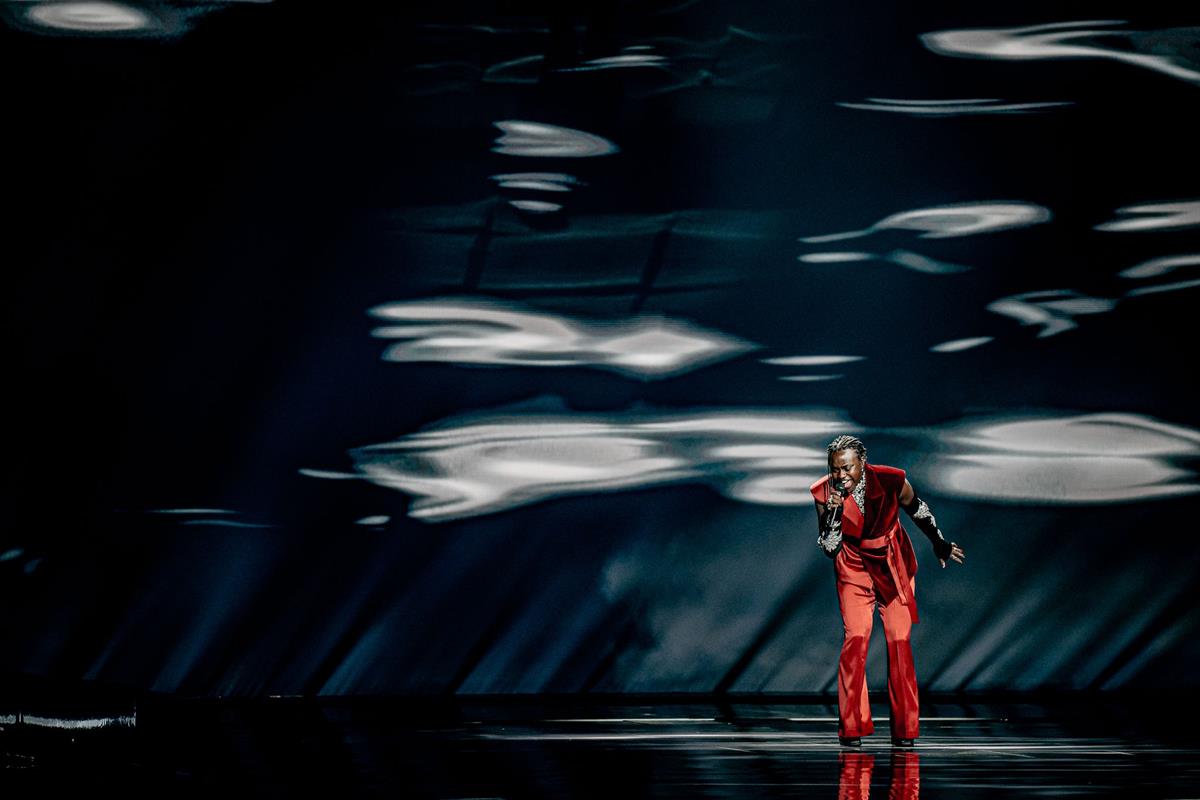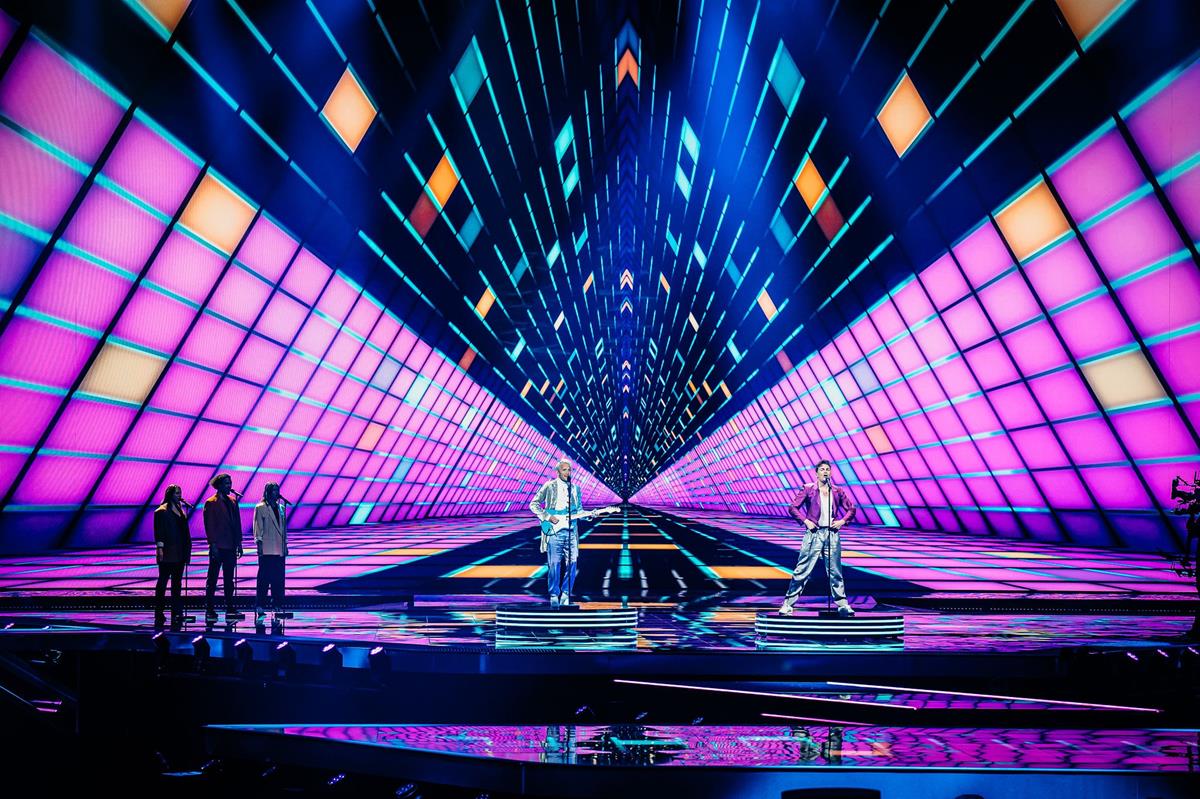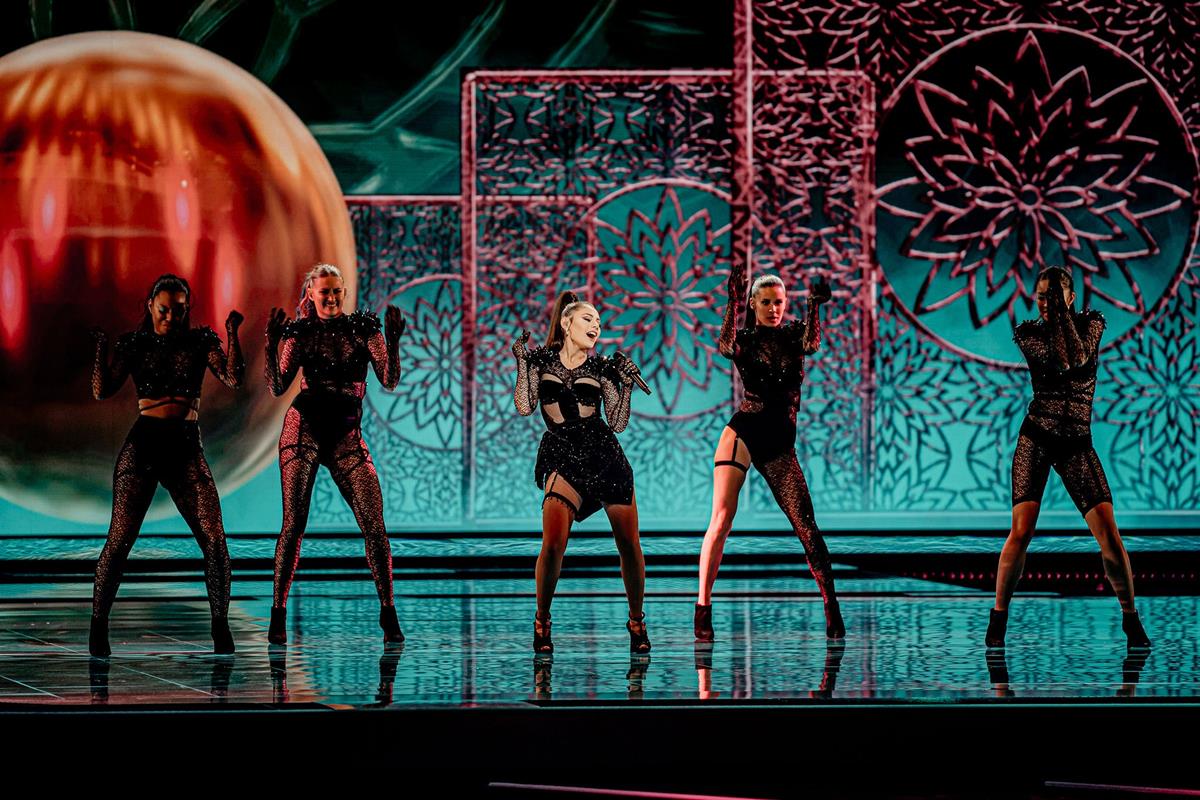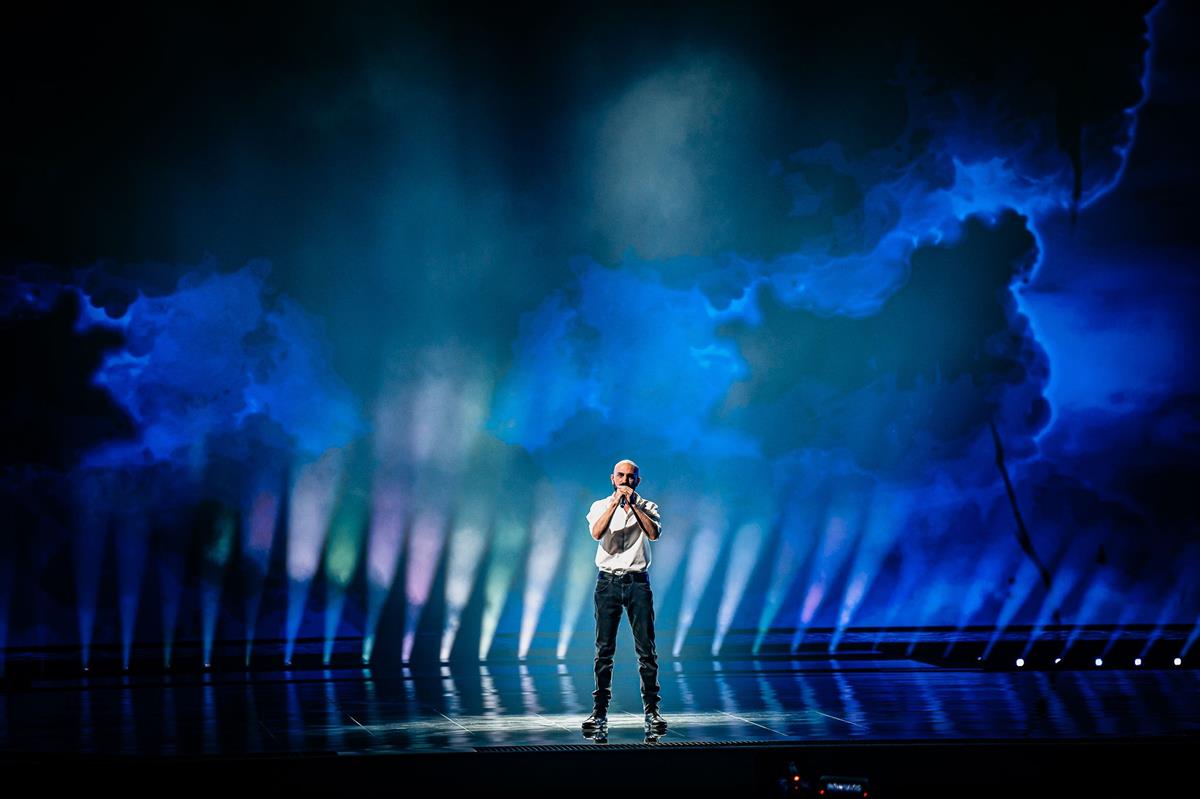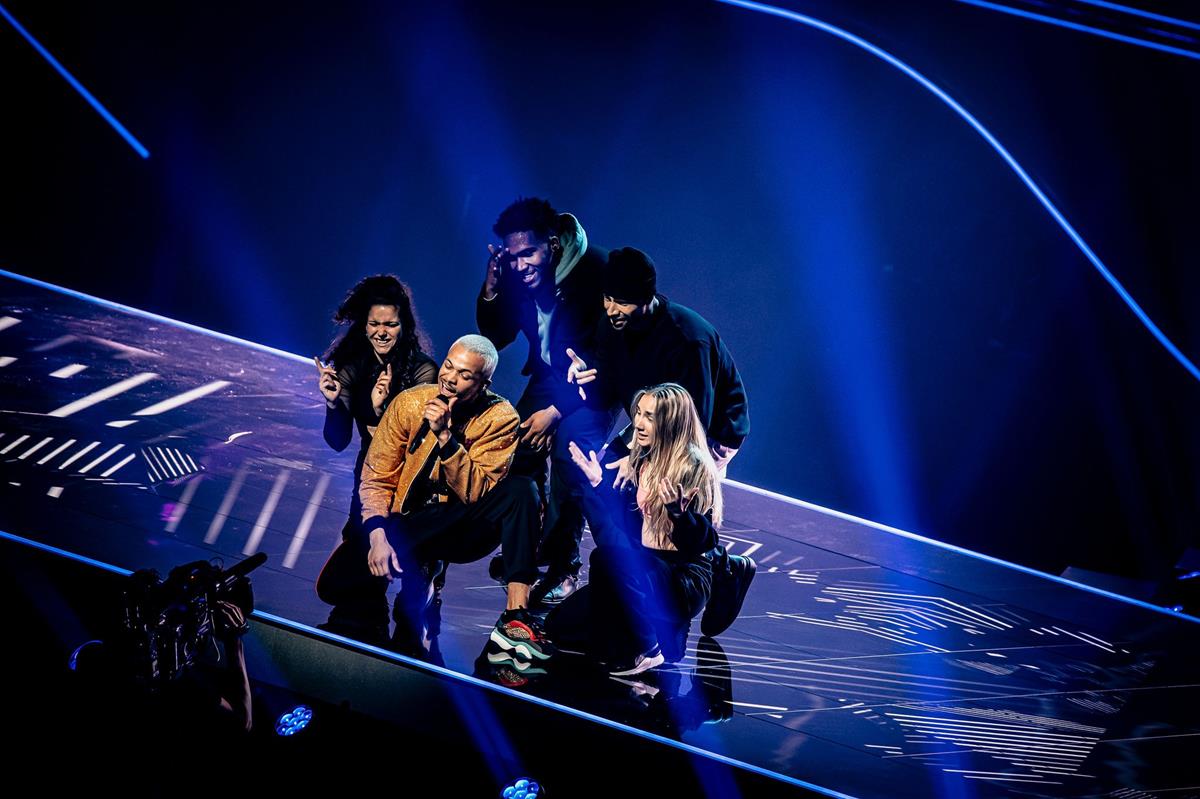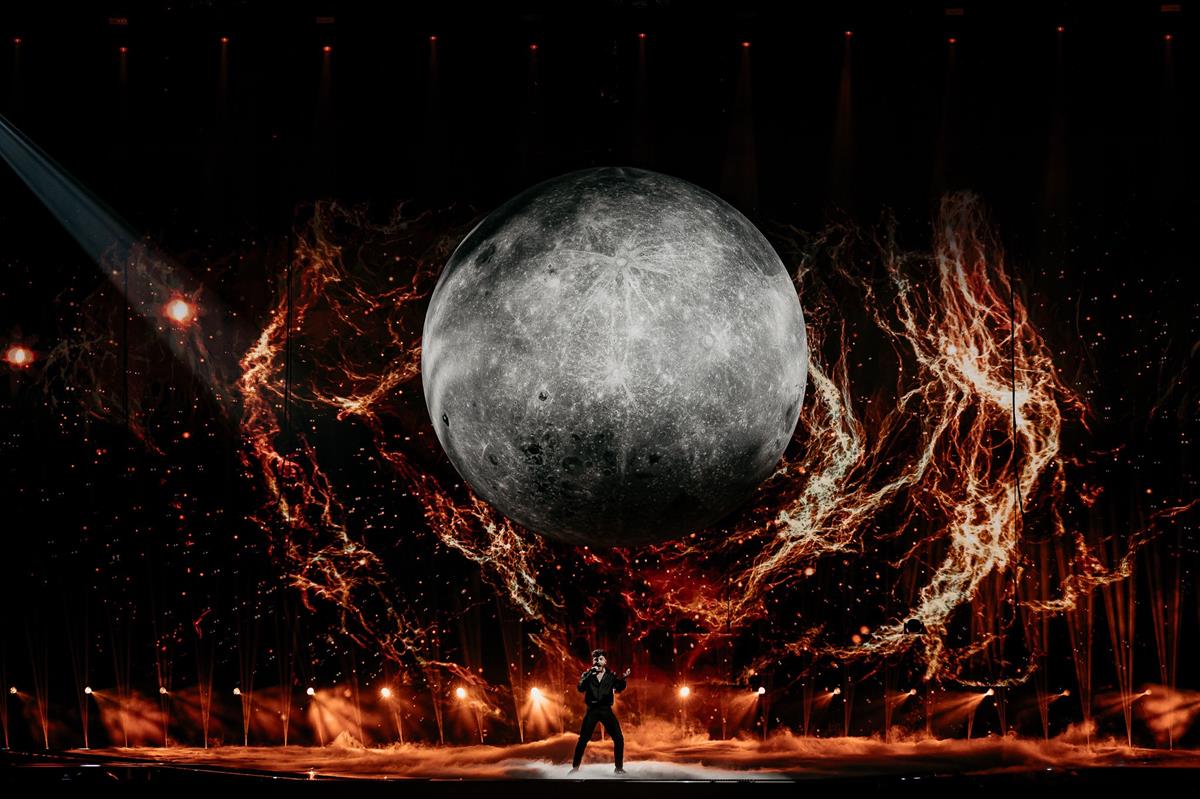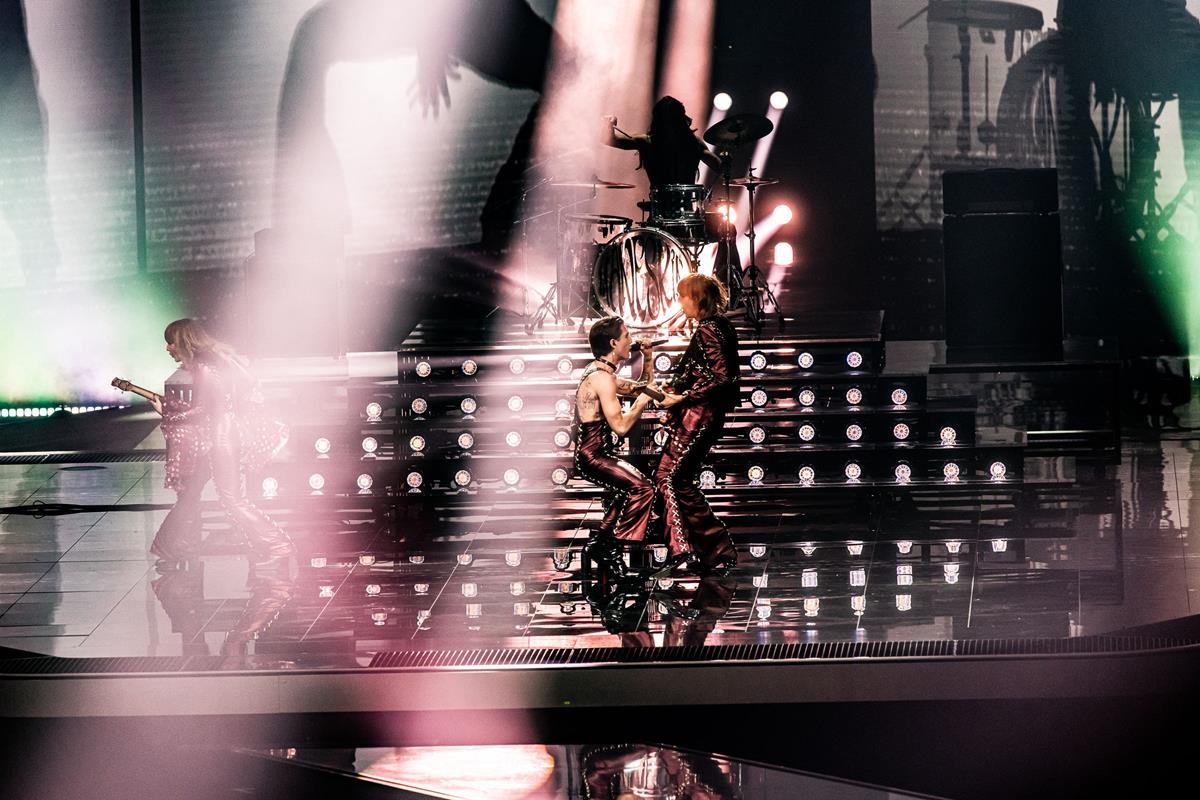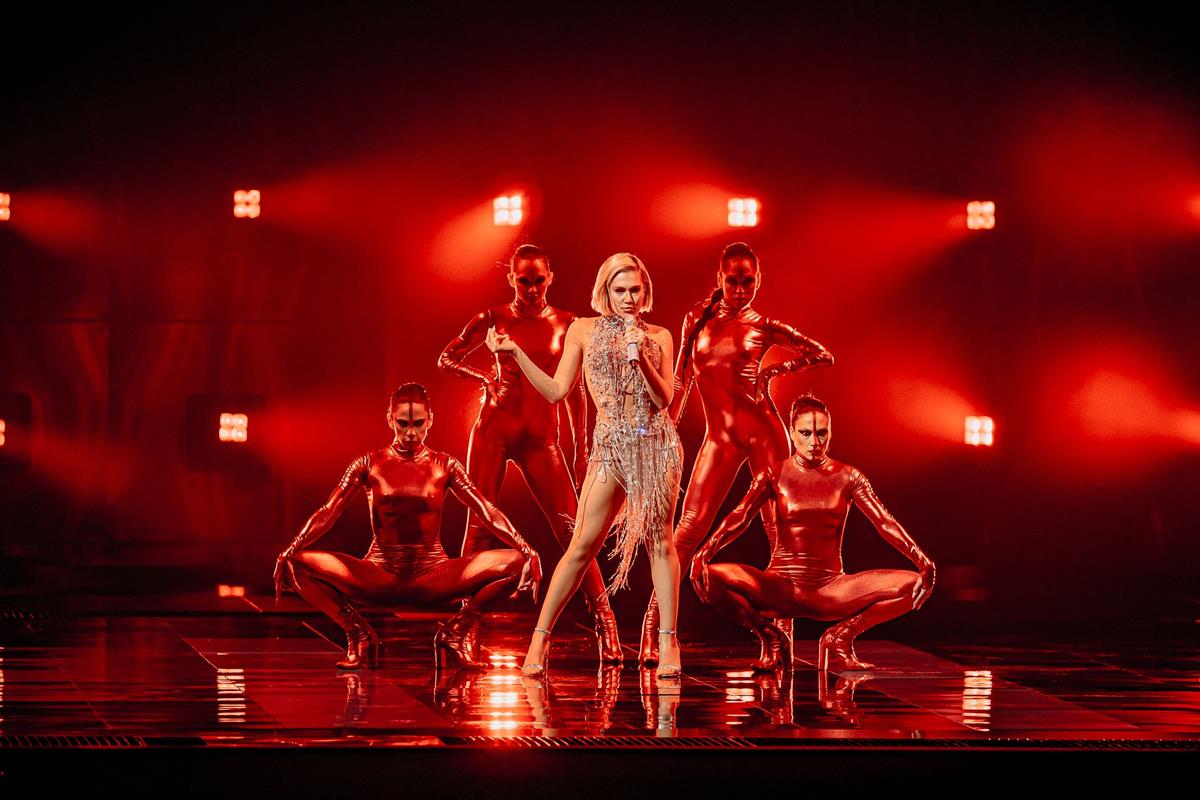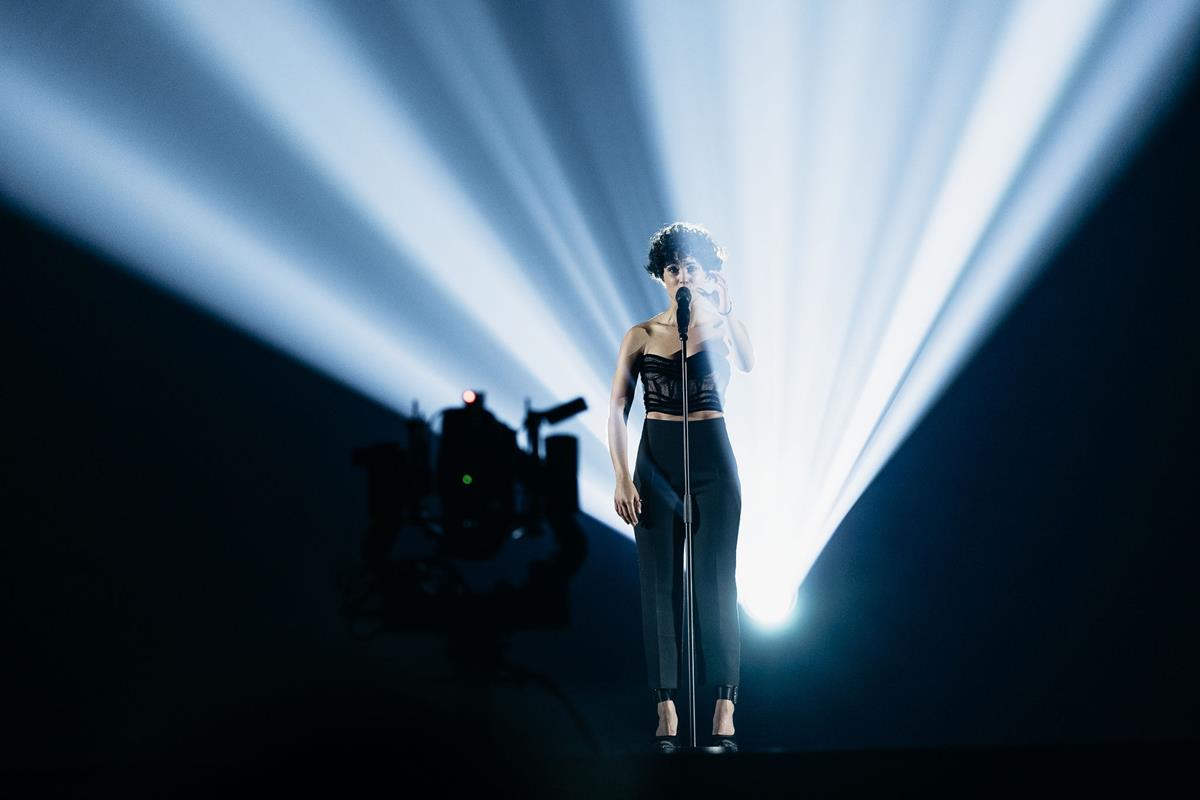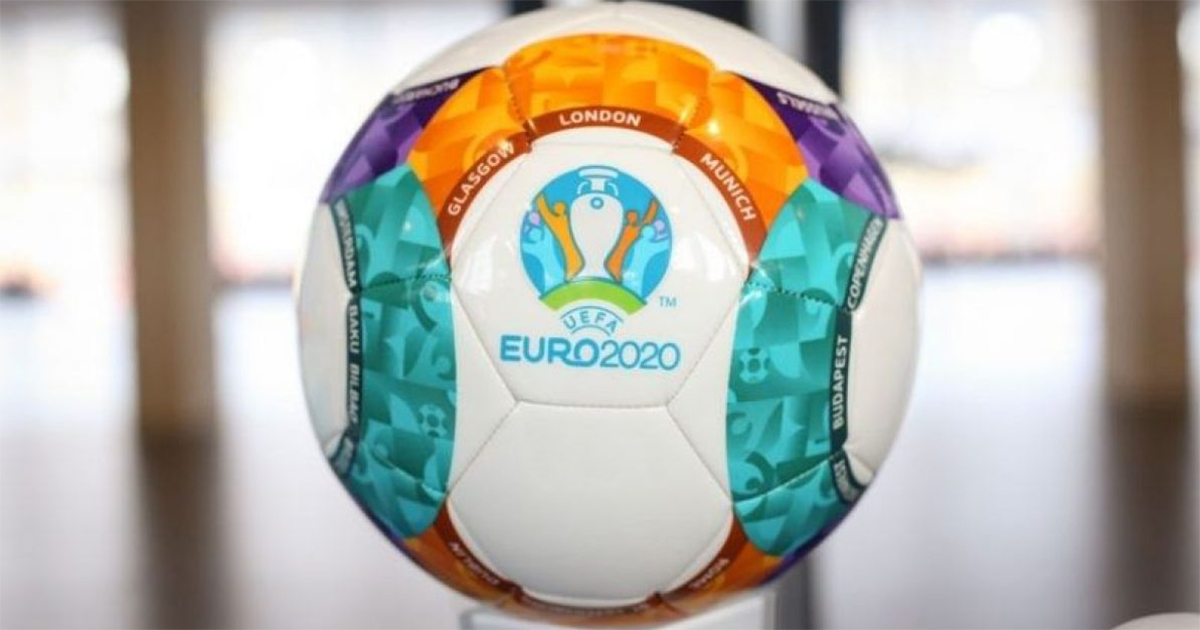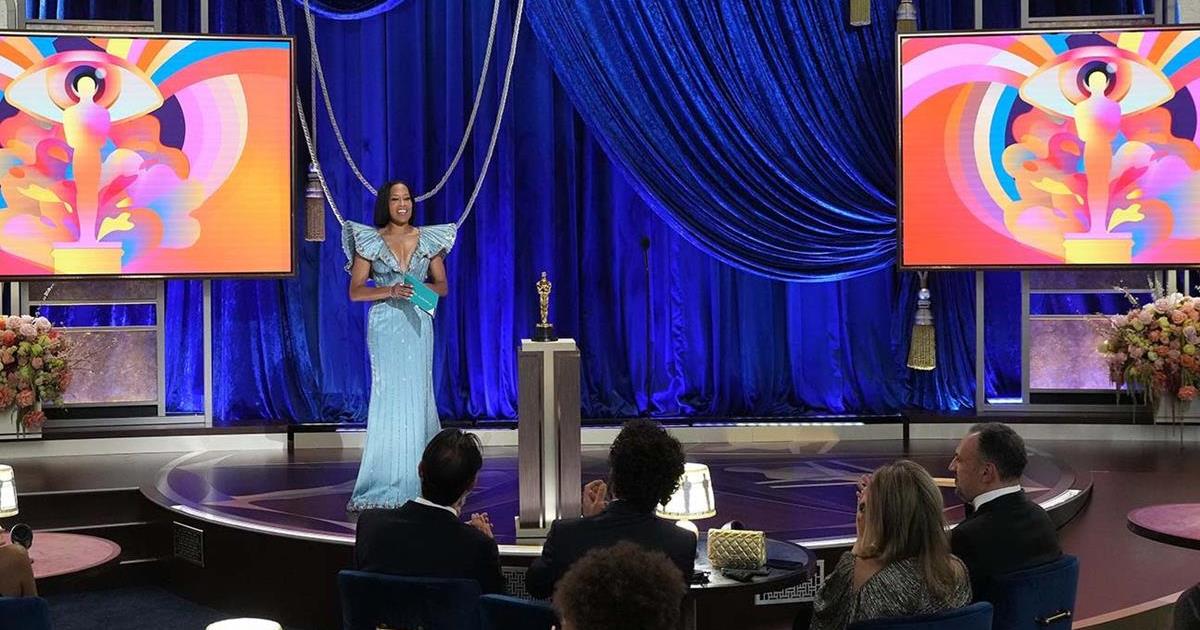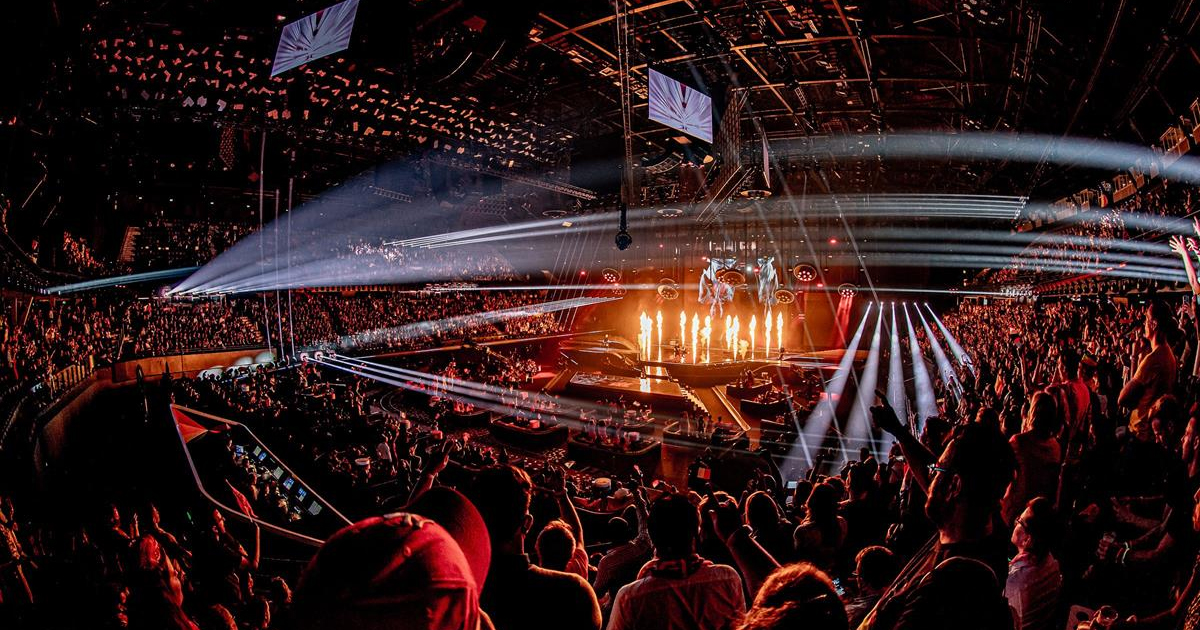
If most Americans have any awareness at all of the event, then it is likely to be Will Ferrell’s delightful and affectionate 2020 movie, Eurovision Song Contest: The Story of Fire Saga. In this comedy musical Ferrell and co-star Rachel McAdams play Lars Erickssong and Sigrit Ericksdóttir, a couple fronting local village band Fire Saga who dream about representing Iceland at the Eurovision Song Contest.
The Story of Fire Saga was initially scheduled for a May 2020 release to coincide with the Eurovision Song Contest 2020. However, due to the COVID-19 pandemic, the 2020 Contest was cancelled, and the film was subsequently released a month later on Netflix.
Appearing on Late Night with Seth Meyers when the movie was released, Rachel McAdams said of the “real” Eurovision Song Contest, “it’s massive. It’s twice the Super Bowl. It’s a huge event. To me it’s the Olympics for a singing competition — the pride that goes into each act performing for their country. But it is one of those things, where people either love it or hate it!”
The world’s biggest music competition returned last weekend as the Eurovision Song Contest, one of the longest-running and most-watched non-sporting events in the world, was broadcast live around the world. The 2021 Contest was held at Rotterdam Ahoy in the Netherlands, following the country’s victory at the 2019 edition in Tel Aviv, Israel, with the song “Arcade,” performed by Duncan Laurence.
Italy, represented by Måneskin, was crowned the 2021 winner with the song “Zitti E Buoni.” France and Switzerland came in second and third. The show was a mammoth effort by host the Netherlands, as this was the largest in-person entertainment event to take place in Europe since the start of the pandemic.
NPO, NOS and AVROTROS Step Forward as Dutch Host Broadcasters
The Eurovision Song Contest is organized yearly by the European Broadcasting Union (EBU), together with the host broadcaster and some 40 participating broadcasters. The contest is overseen by the Reference Group on behalf of the participating broadcasters.
The EBU supports and supervises the work of the host broadcaster and is the central point of contact of all participating broadcasters. Together with its partners, the EBU is centrally dealing with all matters related to the brand, international marketing activities, rights management, voting, communications and online activities.
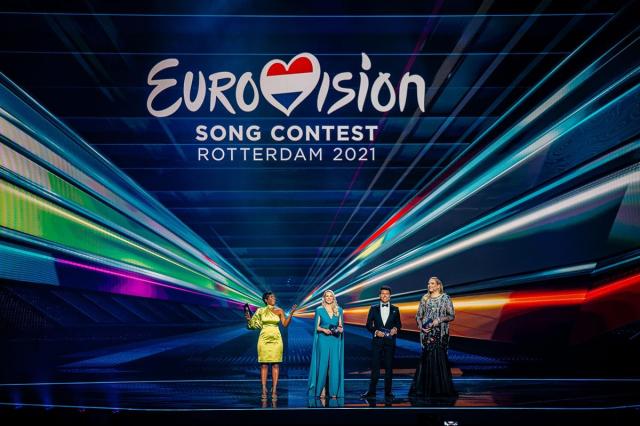
Each participating broadcaster sends a delegation to the contest. While the artist is the most visible delegate, the Head of Delegation is actually in charge of the delegation. This person is the EBU’s main contact person, responsible for making sure their delegation acts in accordance with the rules.
The Eurovision Song Contest 2021 was a co-production between three related Dutch television organizations — Nederlandse Publieke Omroep (NPO), Nederlandse Omroep Stichting (NOS) and AVROTROS — combining to fulfil the host broadcaster function.
At the EBU and host broadcaster press conference on Thursday, May 20, Eurovision Song Contest executive supervisor Martin Österdahl said, “We’re incredibly happy with where we are in terms of the entire project, which is arguably the most complex television production in the world, as well as the largest music event.
“It’s been a long journey to get here, but when I saw the first Semi-Final on Tuesday evening — seeing people in the audience enjoying the show was a great, great feeling.
“So many people have worked so hard to get us here. We knew that the Dutch broadcasters are excellent producers of television, but we also learned how incredibly resilient and adaptable they are. We are all super grateful to the City of Rotterdam and NPO/NOS/AVROTROS.”
Sietse Bakker and Astrid Dutrénit were executive producers, while Emilie Sickinghe and Jessica Stam served as deputy executive producers and the two multicamera directors were Marnix Kaart and Daniel Jelinek. The Contest was hosted by Chantal Janzen, Jan Smit, Edsilia Rombley and Nikkie de Jager (also known as NikkieTutorials).
Like last year, the Eurovision logo and “Open Up” concept was developed by agency Clever Franke, which generated the logo using software developed in-house. The design of the 2020 edition was awarded a European Design Award and a Red Dot Design Award. Co-founder Gert Franke said they “extended the style from last year to 2021” and retained the “simple, intelligent, minimalist and experimental” elements but then added a “festive touch, to celebrate the return of the Eurovision Song Contest.”
“We knew that the Dutch broadcasters are excellent producers of television, but we also learned how incredibly resilient and adaptable they are. We are all super grateful to the City of Rotterdam and NPO/NOS/AVROTROS.”
— Martin Österdahl
The Eurovision stage was designed by German designer Florian Wieder, who also designed the stages for the contests in 2011-12, 2015, and 2017-19. Its features included a movable primary LED screen that was 52 meters wide and 12 meters high, and a retractable semi-transparent LED screen that could be used as a backdrop for a secondary stage. The production featured 25 cameras, 1,782 moving lights, 887 square meters of LED panels and 8,250 meters of fibre optic cable.
Osram, parent company of Claypaky, was the official lighting partner of the ESC 2021 and, as in past years, contributed to the event by illuminating a key building in the city of Rotterdam. Claypaky itself was represented at ESC by a complement of 481 Xtylos, innovative luminaires equipped with a tailor-made laser source and boasting super-concentrated beams of colored light.
The Grand Final was broadcast live in all participating countries. One of the compelling aspects of Eurovision is that following all the live performances, the show hosts go live to a broadcaster in each of the participating countries to gather the jury votes from that country. Once that circuit is completed, voting then goes live online to a popular public poll.
The Participating Broadcasters this year were: Albania – RTSH; Australia – SBS; Austria – ORF; Azerbaijan – Ictimai TV; Belgium – VRT; Bulgaria – BNT; Croatia – HRT; Cyprus – CyBC; Czech Republic 1 CT; Denmark – DR; Estonia – ERR; Finland – YLE; France – FT; Georgia – GPB; Germany – ARD/NDR; Greece – ERT; Iceland – RUV; Ireland – RTE; Israel – IPBC/Kan; Italy – RAI; Latvia – LTV; Lithuania – LRT; Malta – PBS; Moldova – TRM; The Netherlands – AVROTROS; North Macedonia -MKRTV; Norway – NRK; Poland – TVP; Portugal – RTP; Romania – TVR; Russia – C1R; San Marino – RTV; Serbia – RTS; Slovenia – RTVSLO; Spain – TVE; Sweden – SVT; Switzerland – SRG/SSR; Ukraine – UA:PBC; United Kingdom – BBC.
Competitors EMG and NEP Collaborate for Multi-Camera Coverage
For “arguably the most complex television production in the world,” a unique collaboration between broadcast facilities giants EMG (formerly Euro Media Group) and NEP Group joined forces for multi-camera coverage and the technology backbone. The two groups were represented by United for EMG and NEP The Netherlands — and the joint effort was represented by both logos on the sides of the convoy of OB trucks that departed Hilversum for Rotterdam two and a half weeks before the Grand Final.
On behalf of the host broadcaster, both companies took care of the registration, including all technical facilities, crew and equipment, for the three live shows from Ahoy. It is the collaboration between these erstwhile competitors that makes this international music spectacle possible and can thus meet all technical production conditions and high quality requirements.
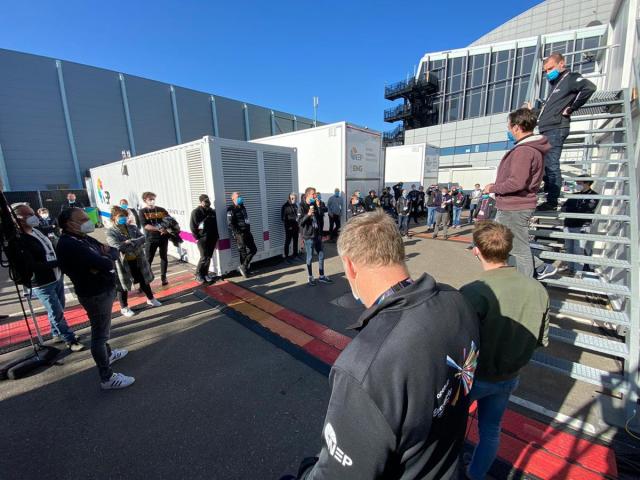
“We are extremely proud that we, as two Dutch companies, are once again able to record the largest music event in this unique collaboration this year. Eurovision is of unprecedented scale, complexity and reach, so we are honored to be involved again,” said Ralf van Vegten, Managing Director, NEP, The Netherlands.
“This year NEP is also developing and supplying the graphics and AR elements that are controlled by our own software and people. The Eurovision Song Contest is an event that connects and that the public is looking forward to. Expectations and quality standards are therefore extra high this year. That is why we are deploying the best technical solutions, equipment and people to meet these requirements and make it an unforgettable spectacle,” said van Vegten.
René Delwel, CEO of United added, “It’s great to see the two companies working together as a team for this massive event. This 65th edition of the Eurovision Song Contest is unique and also of great national importance. Our people are very aware of this and work hard to deliver the best end result.
“With the organization of this largest European entertainment show, The Netherlands can also put itself on the international map with over 200 million viewers. This is therefore a unique opportunity that we seize together with both hands.”
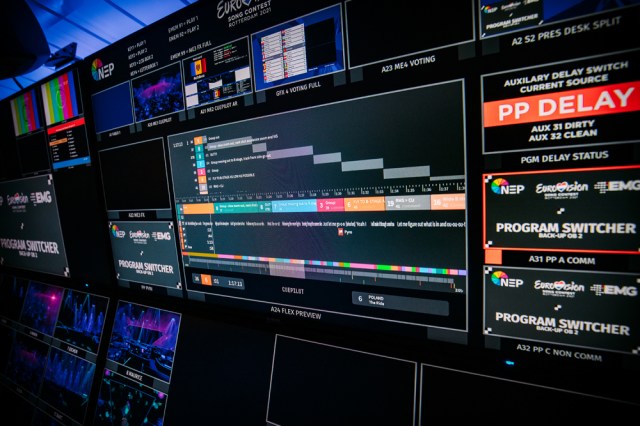
The production facilities supplied by NEP and United included 130 video signals, 140 Riedel intercom panels and 60 Bolero beltpacks, numerous OB trucks, a TOC container, 60 EVS channels and inbound connections from 40 countries.
NEP and United held rehearsals for more than two weeks at the venue, working to blend the many AR elements for the live show. For these elements an additional digital image is added at the same time as the camera image for a special visual effect. These effects bring into play the CuePilot system, where the director’s script is pre-cued so that the camera team all know when these extended reality elements are to be added into the live action.
Among the camera deployment for the international competition were two Steadicams, four front-of-houses (cameras aimed at the stage), a Speedcam, a monorail, two large camera cranes, a number of remote-controlled cameras and three handhelds for the greenroom.
This year’s Song Contest broadcast included audio mixed on four Lawo 64-fader mc²56 consoles, Nova routing cores and the company’s VSM broadcast control system, according to Jenny Priestley at TVB Europe. All were installed in NEP’s UHD1 and UHD2 OB trucks which were on site at the Ahoy Arena in Rotterdam.
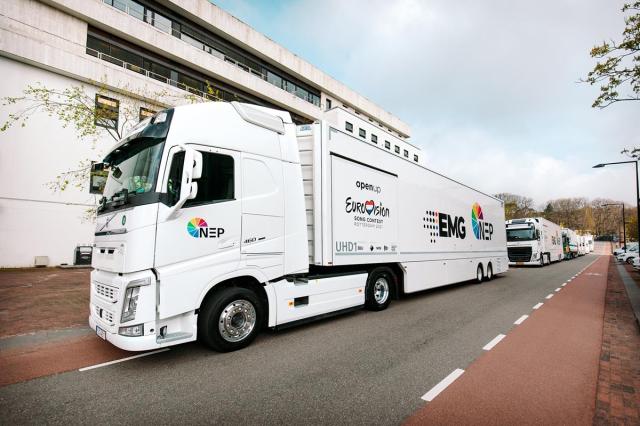
The two OB trucks were set up in a Main/Backup configuration for easy protection switching. Two additional 48-fader mc²56 consoles, along with monitoring equipment and outboard gear provided by Lawo Rental, were employed in a separate music room where Music Producer Tijmen Zinkhaan mixed all delegations and interval acts.
While all broadcast audio connections were streamed via RAVENNA/AES67, the audio signals for the PA at the Ahoy venue were provided by Dante cards inside the Nova routing cores. Eurovision Song Contest 2021’s Head of Sound Thijs Peters said, “There was never any doubt that Lawo consoles were the perfect match for this prestigious assignment. They sound great, their routing capabilities are infinite, our set up integrates seamlessly and can be conveniently controlled via Lawo’s VSM broadcast control system.”
American Song Contest Set for NBC Screening in 2022
The Eurovision Song Contest is going stateside as NBC has secured the “American Song Contest” — a co-production between Propagate and Universal Television Alternative Studio, a division of Universal Studio Group.
The show will feature live performances, representing all 50 states, five United States territories and the nation’s capital, Washington, D.C., competing to win the country’s vote for the “Best Original Song.” The live contest will consist of three rounds as the acts compete in a series of qualifying rounds, followed by Semi-Finals and the ultimate Grand Final where one state or territory will emerge victorious.
Martin Österdahl, executive supervisor of the Eurovision Song Contest, said, “For 65 years the Eurovision Song Contest has connected people far and wide. As owners of this hugely successful format, we have seen how it has found a place in millions of hearts across Europe and beyond. Now we are excited to have found the perfect partners to share this unique competition and its passionate celebration of music and original songs with the American people.”
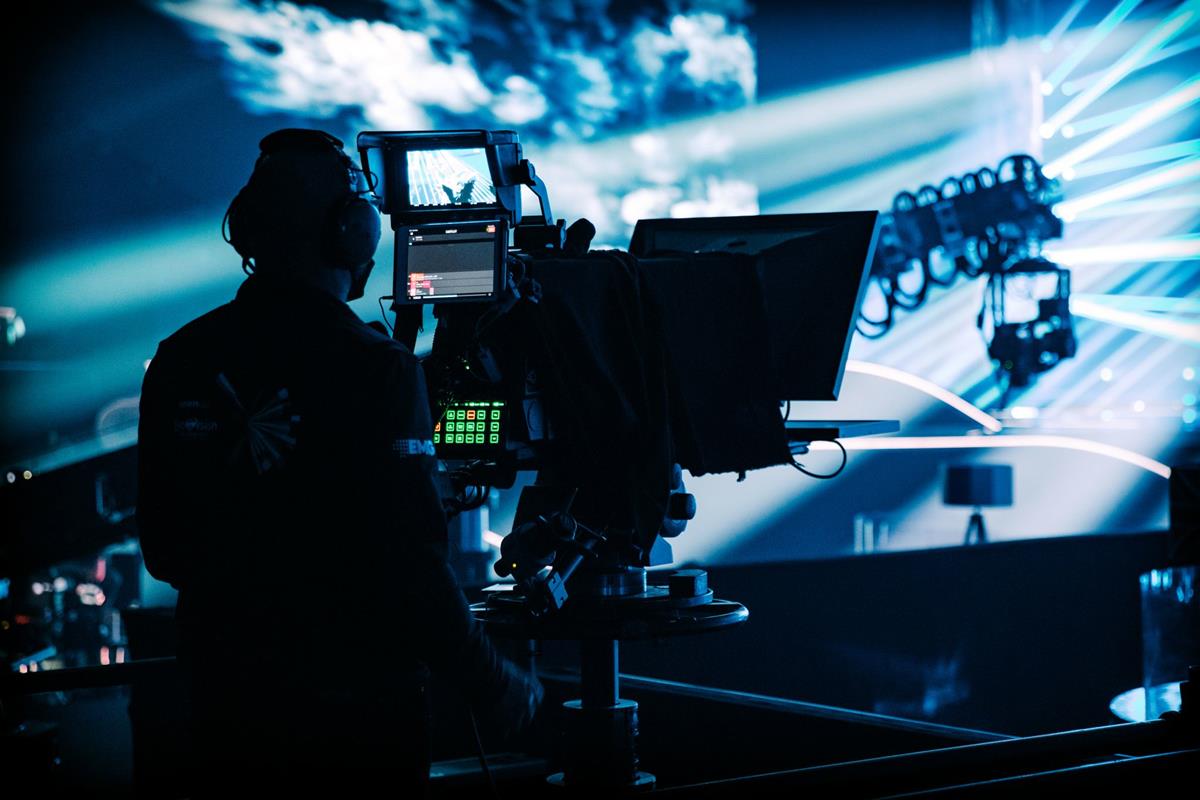
Anders Lenhoff, Peter Settman, Christer Björkman and Ola Melzig, Producers with experience of over 20 Eurovision Song Contests between them, acquired the American format rights for Eurovision Song Contest from the EBU and partnered with Propagate to bring Eurovision to the USA.
This team commented, “The Eurovision Song Contest is the biggest live music event in the world, and it is a great honor to bring it to the United States and transform our dream of American Song Contest into a reality on NBC. It’s awe-inspiring to stand at the beginning of an American legacy and it doesn’t get more exciting than that.”
American Song Contest is looking for the best original song showcasing an artist’s style and individuality. The submissions process to represent each state or territory is already underway and welcomes all varieties of music including country, dance, electronic, pop, rap, R&B, rock and more.

